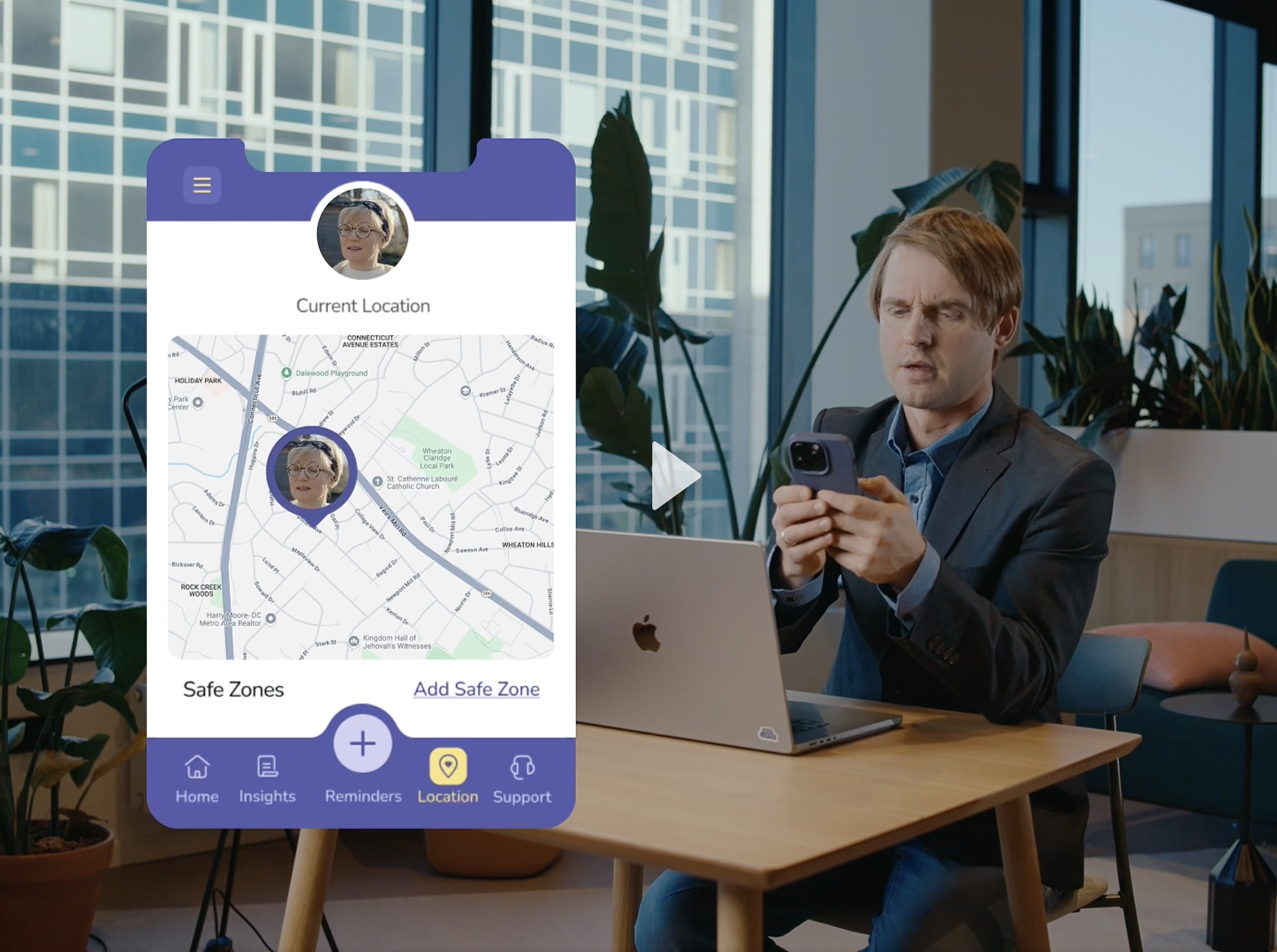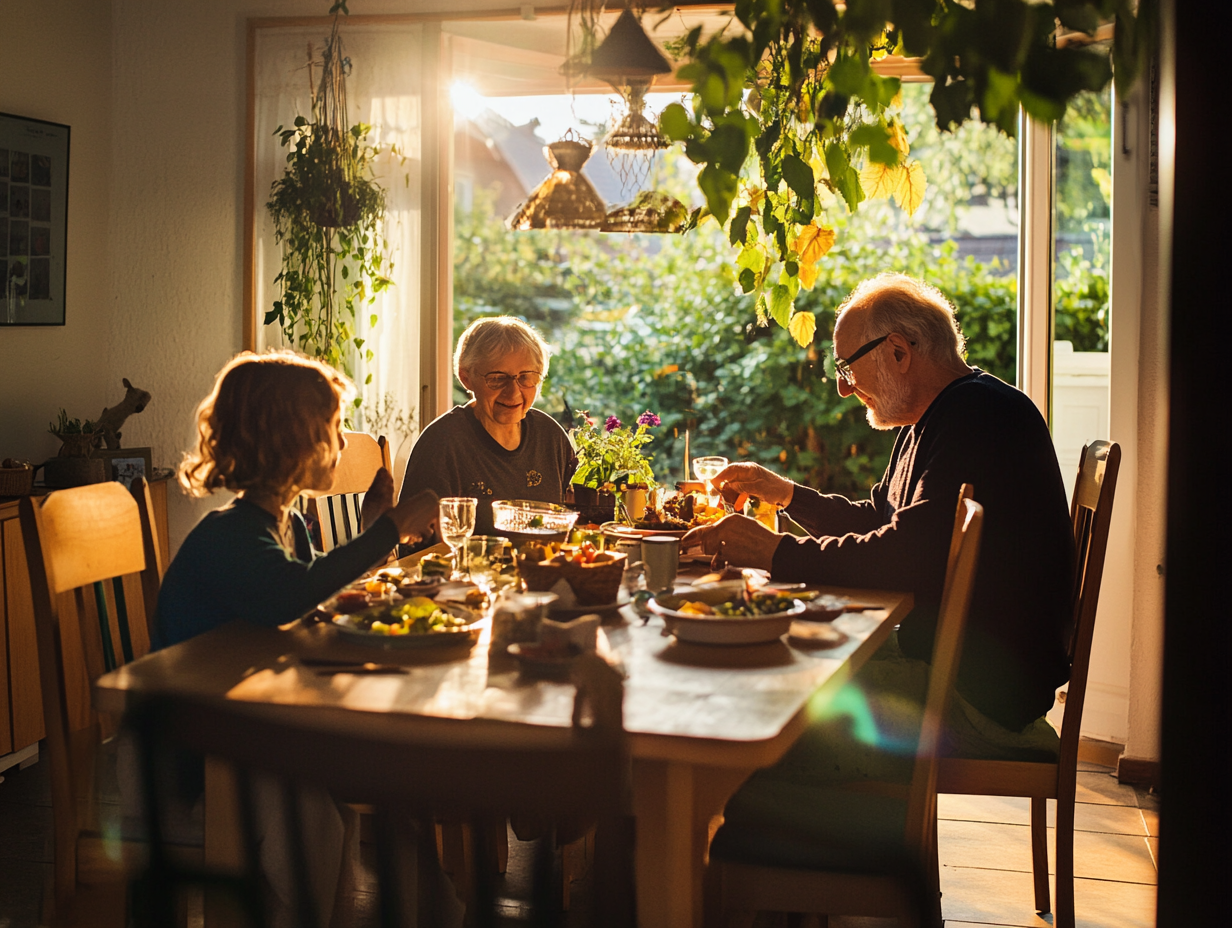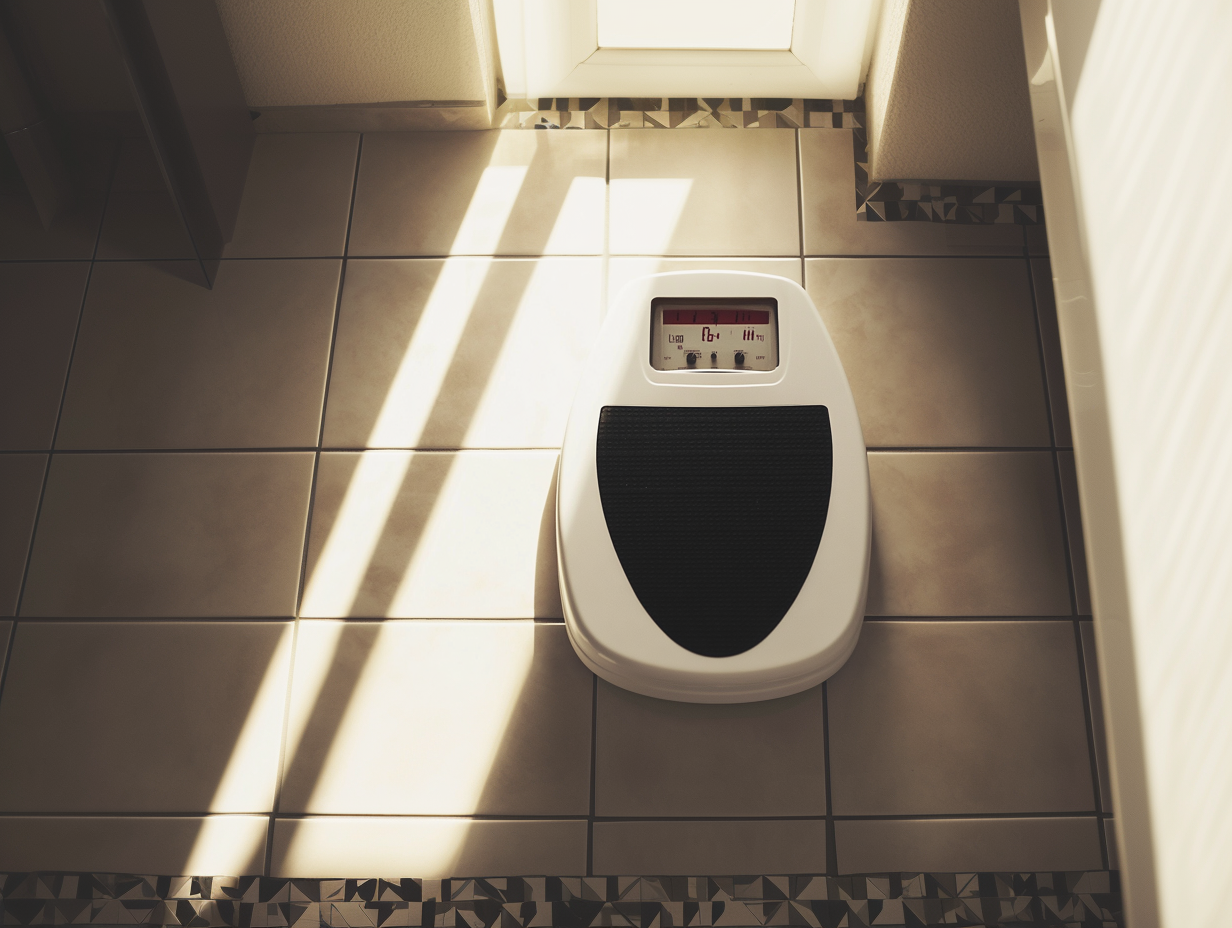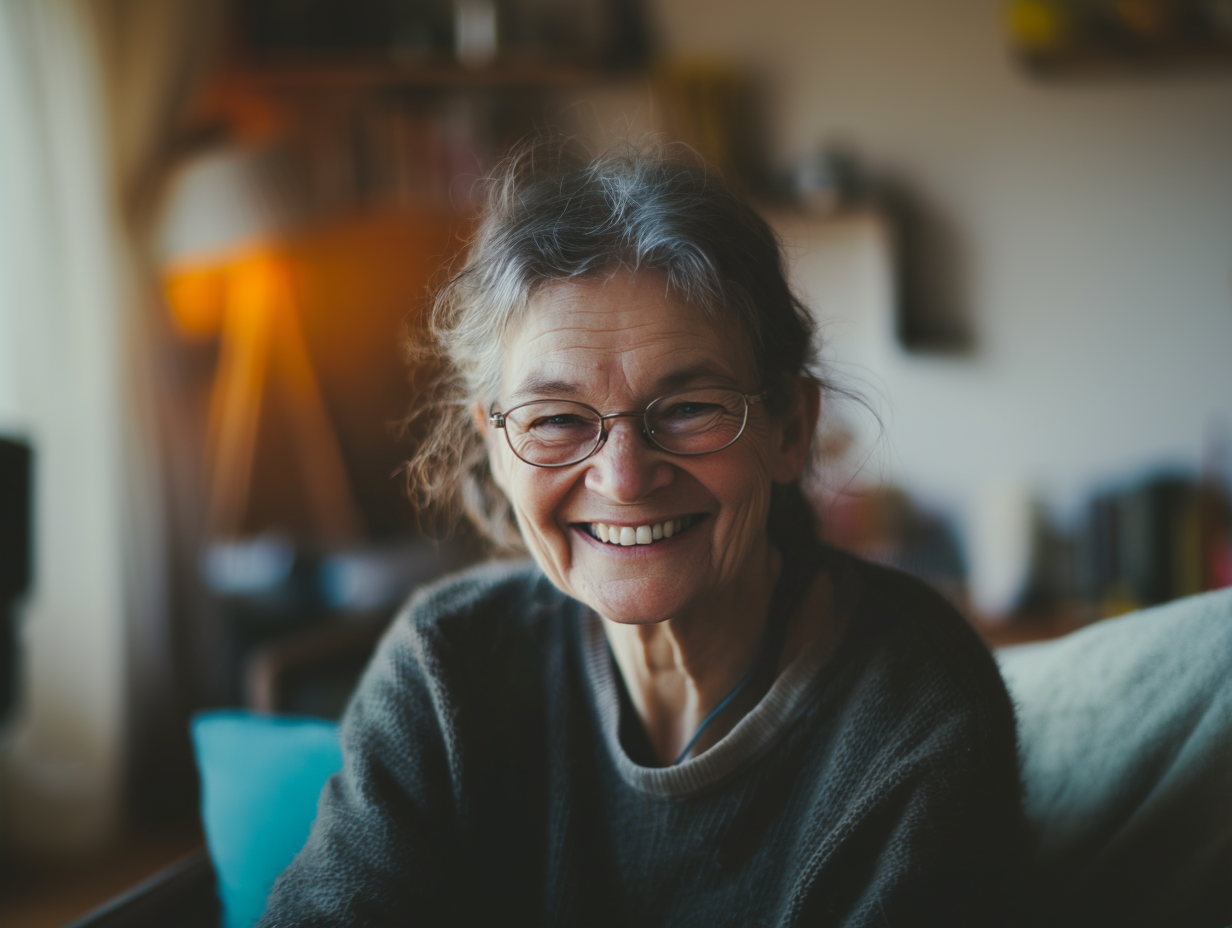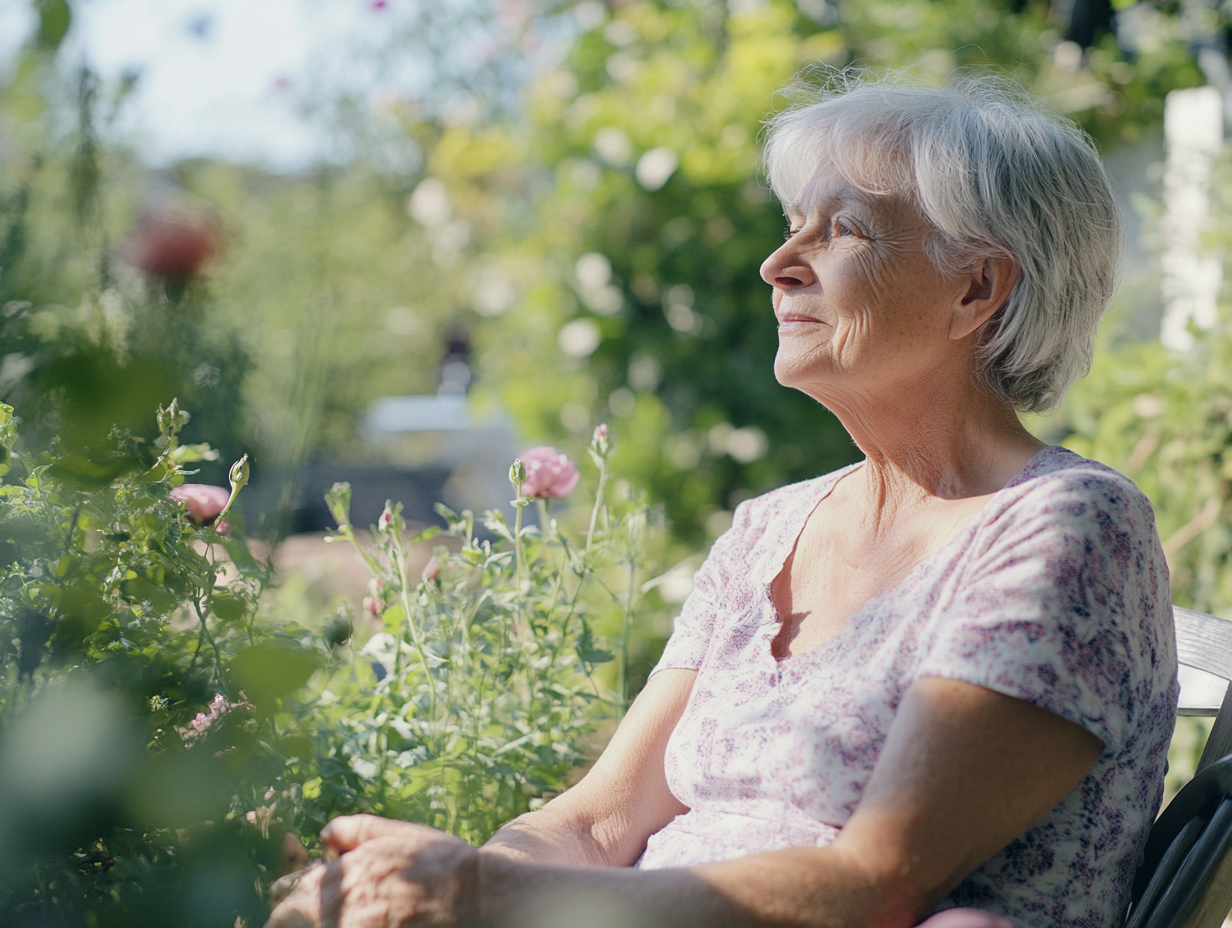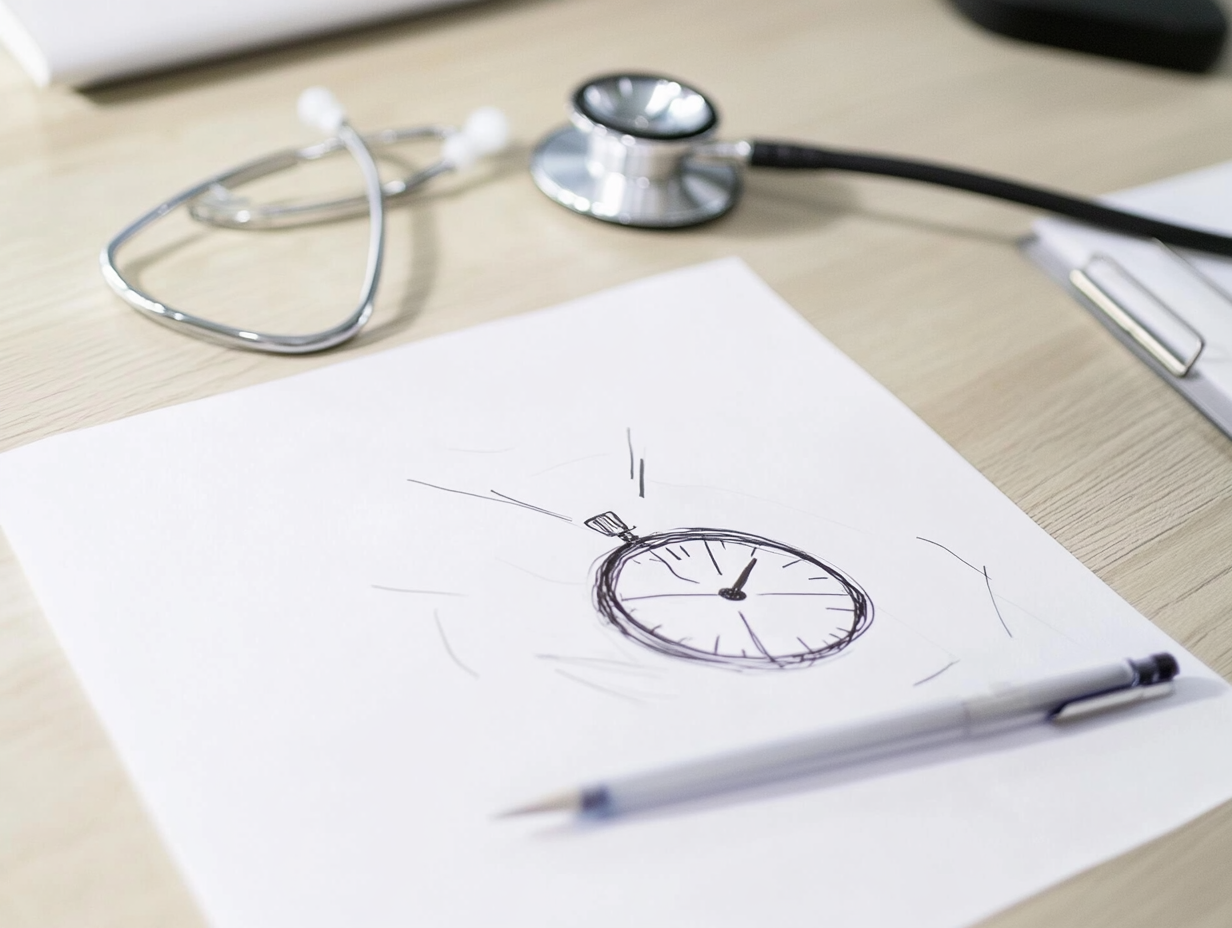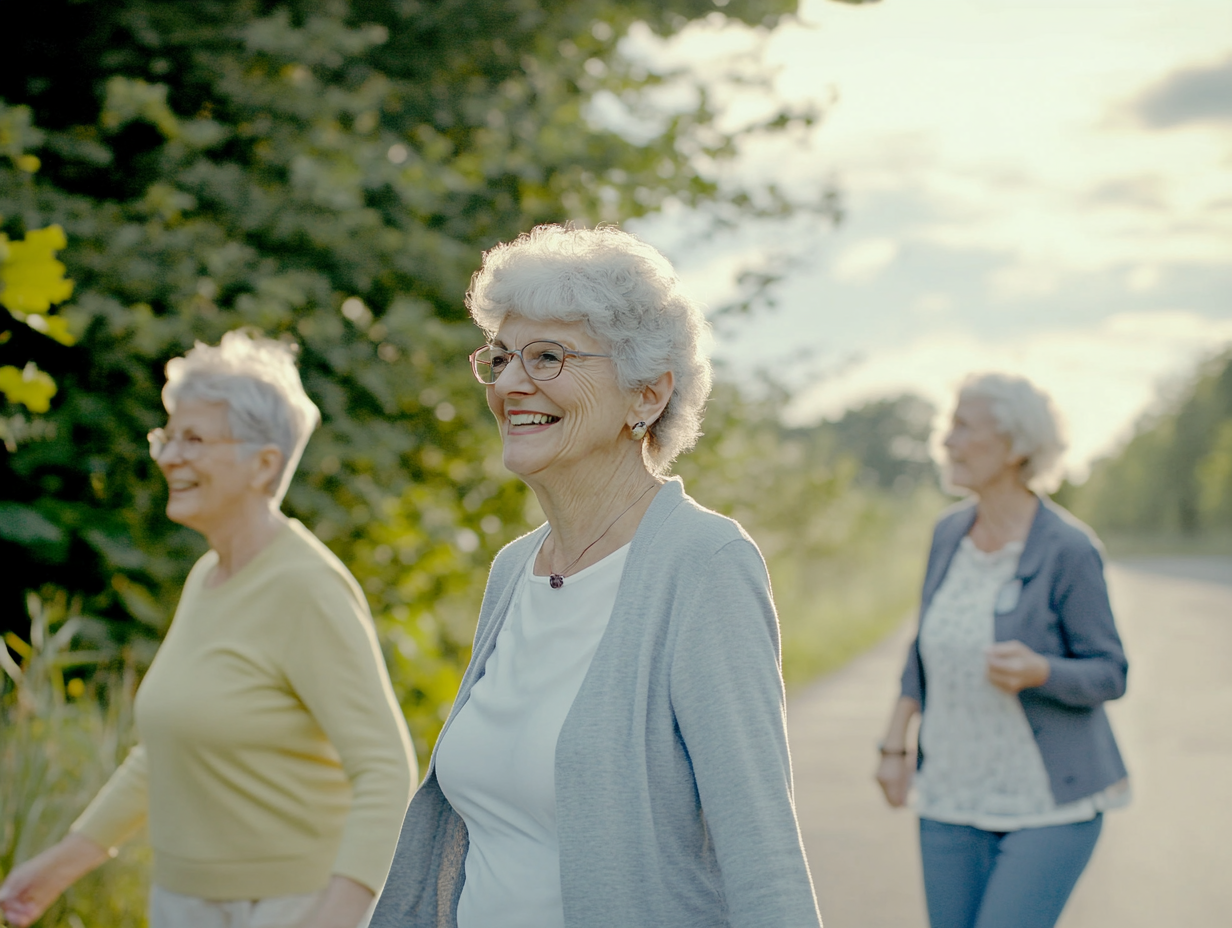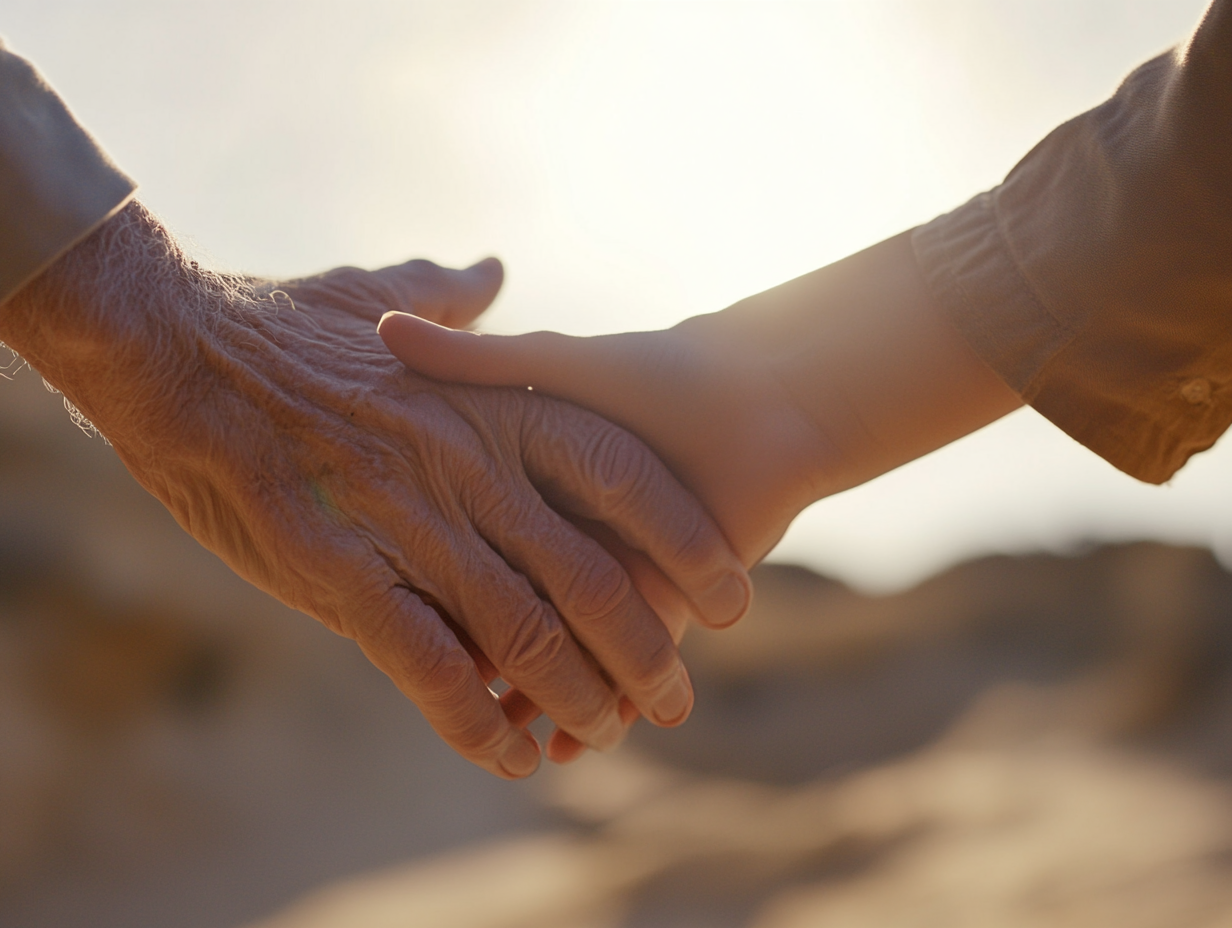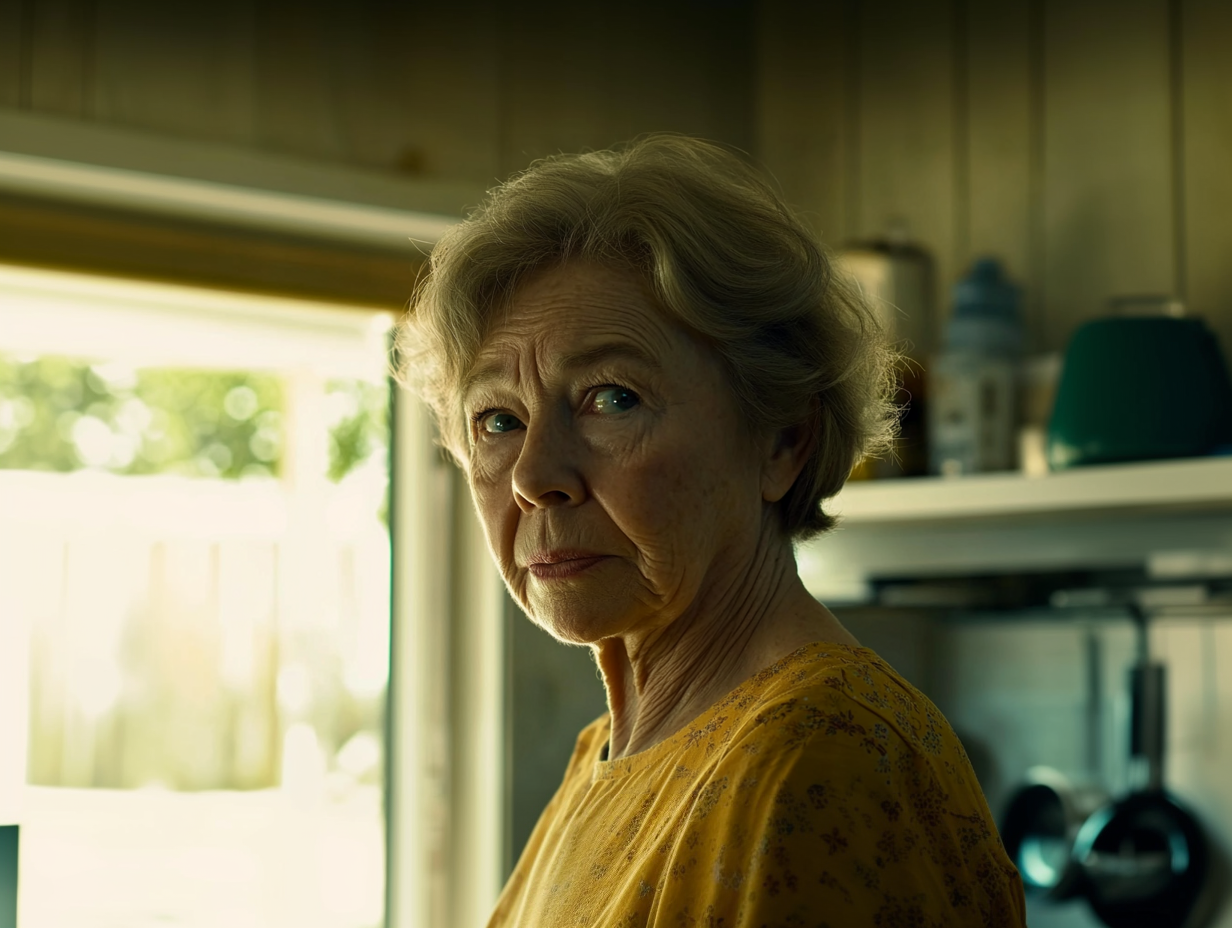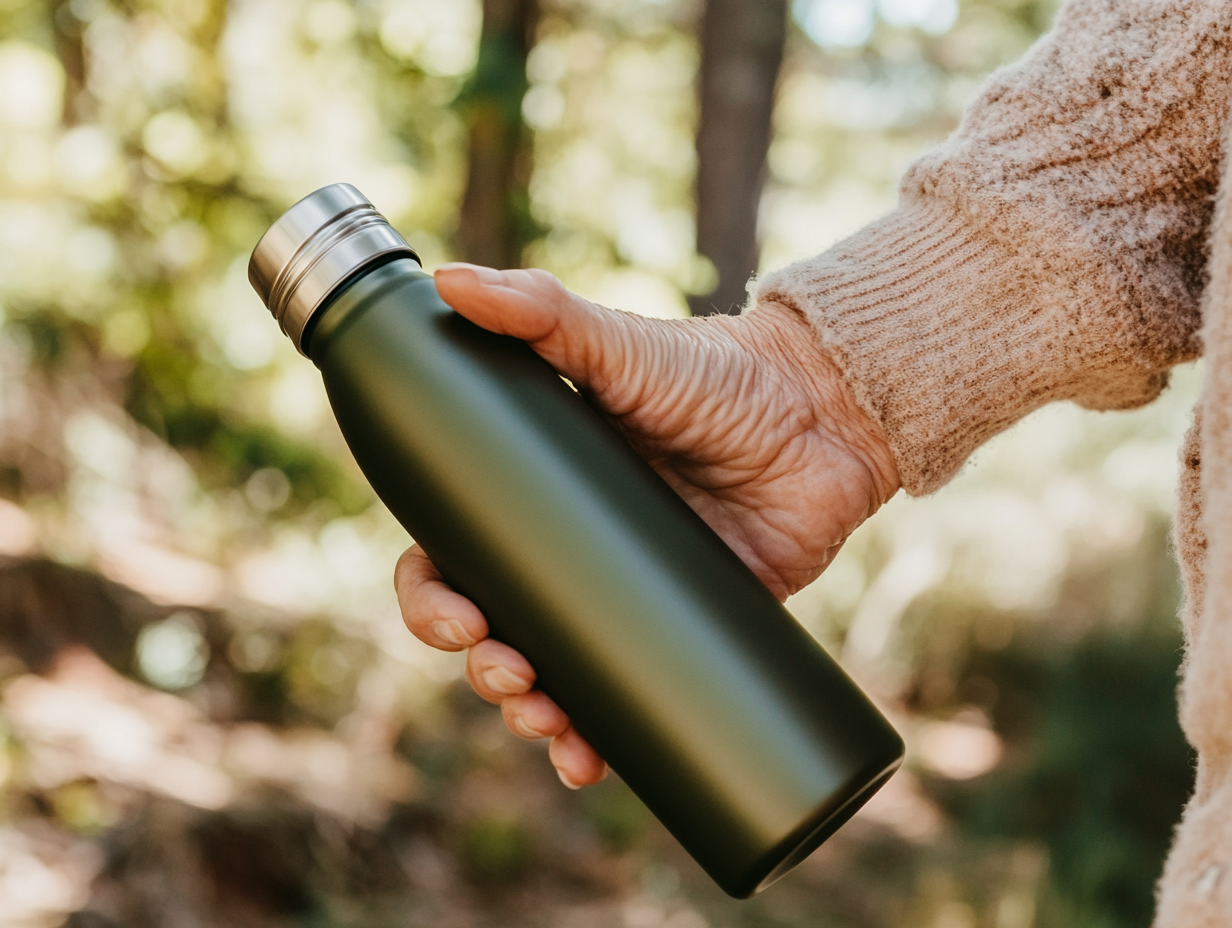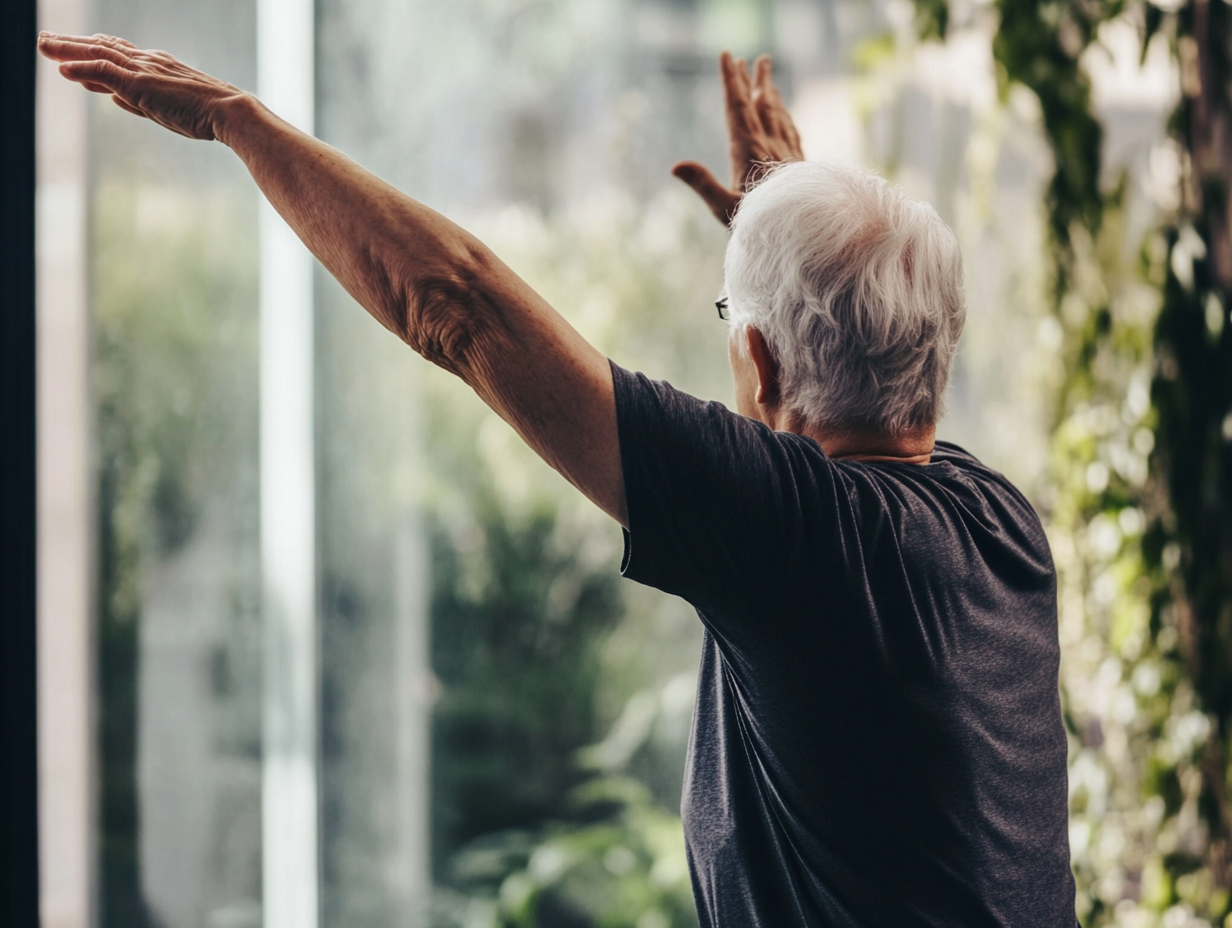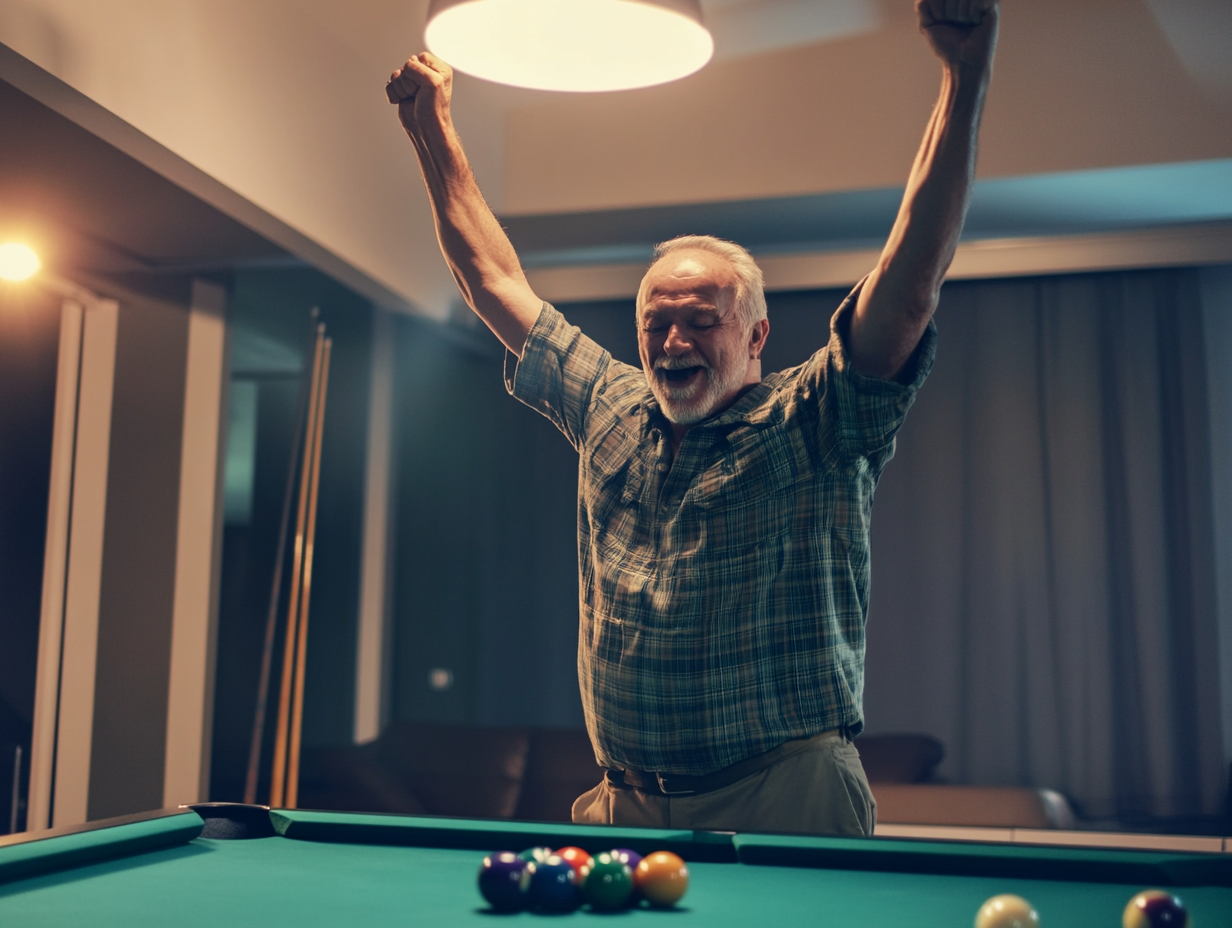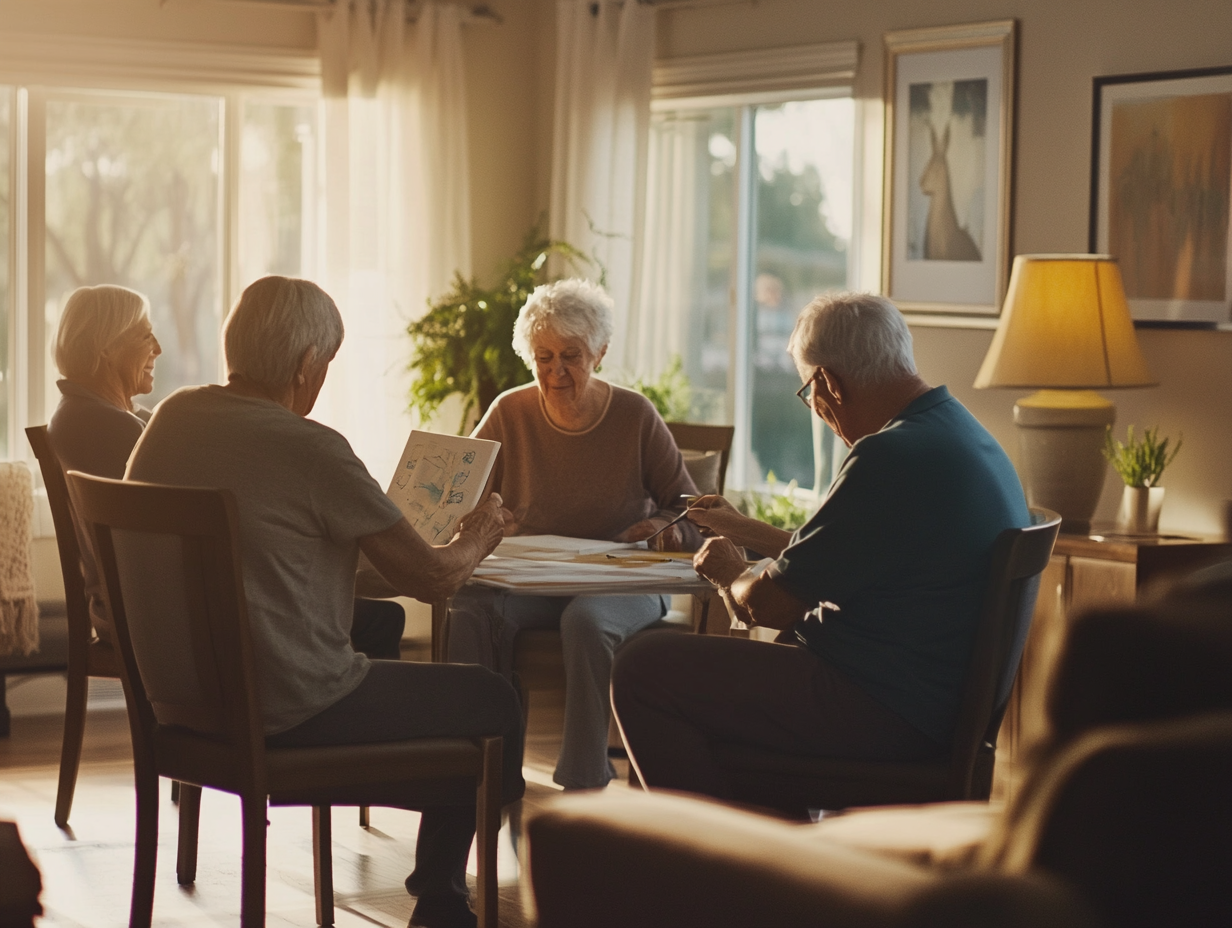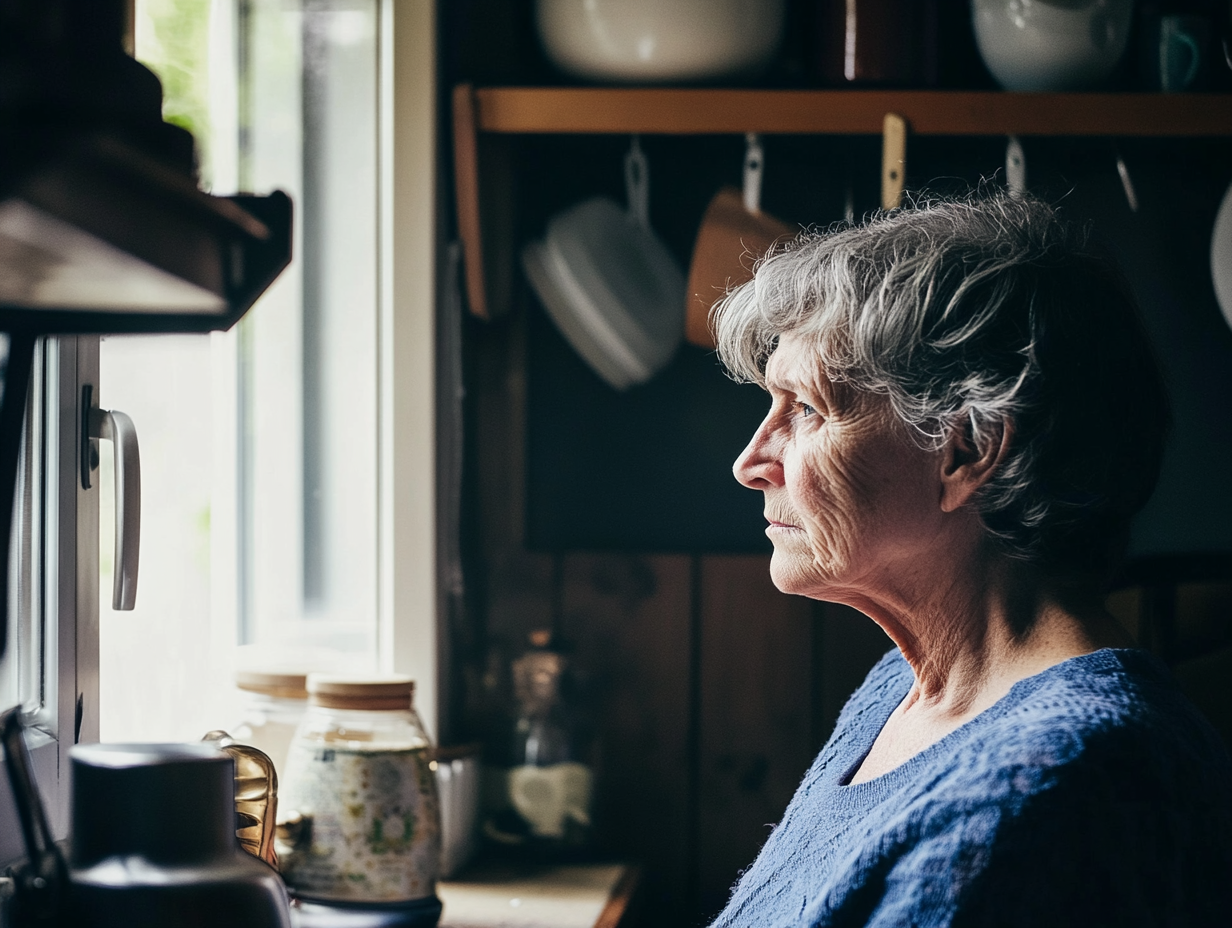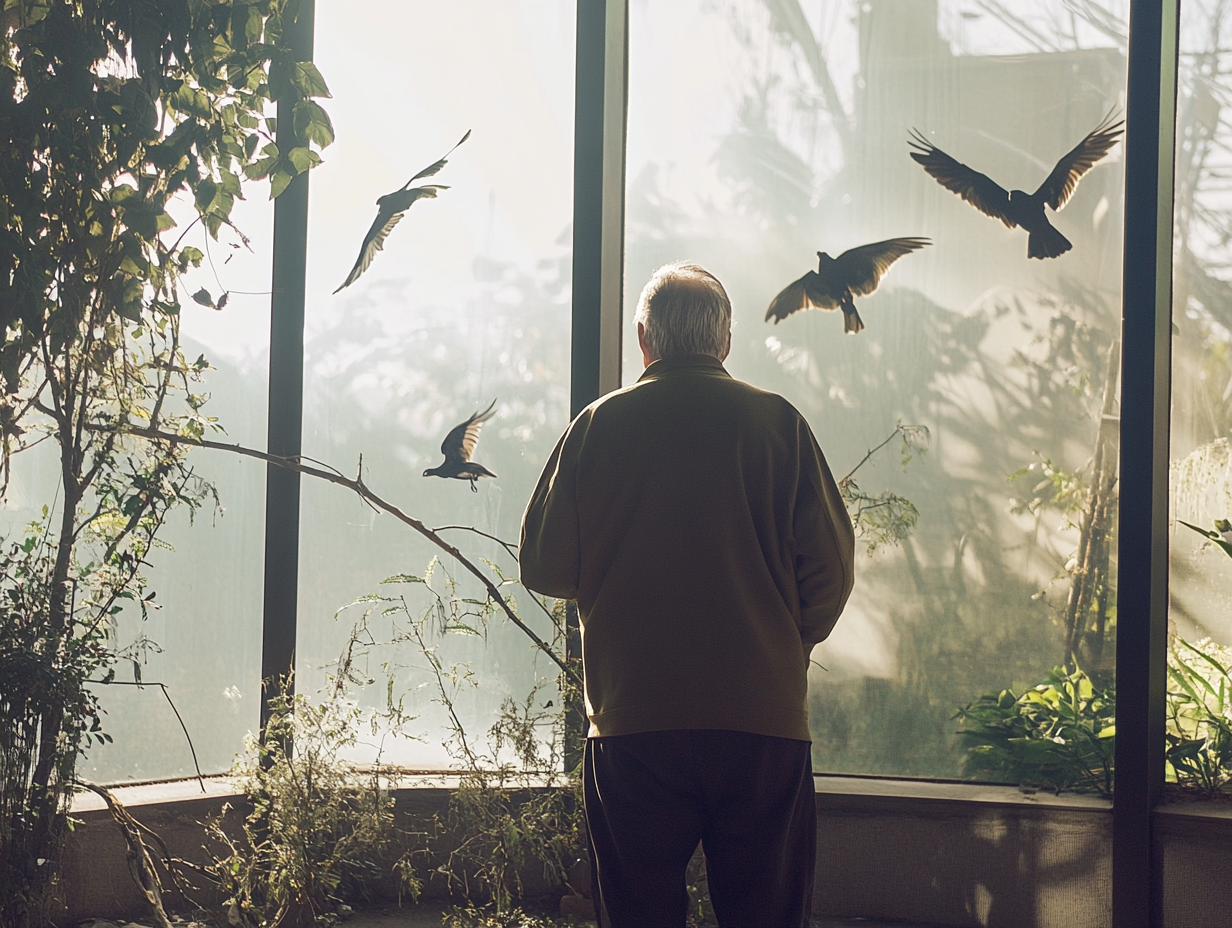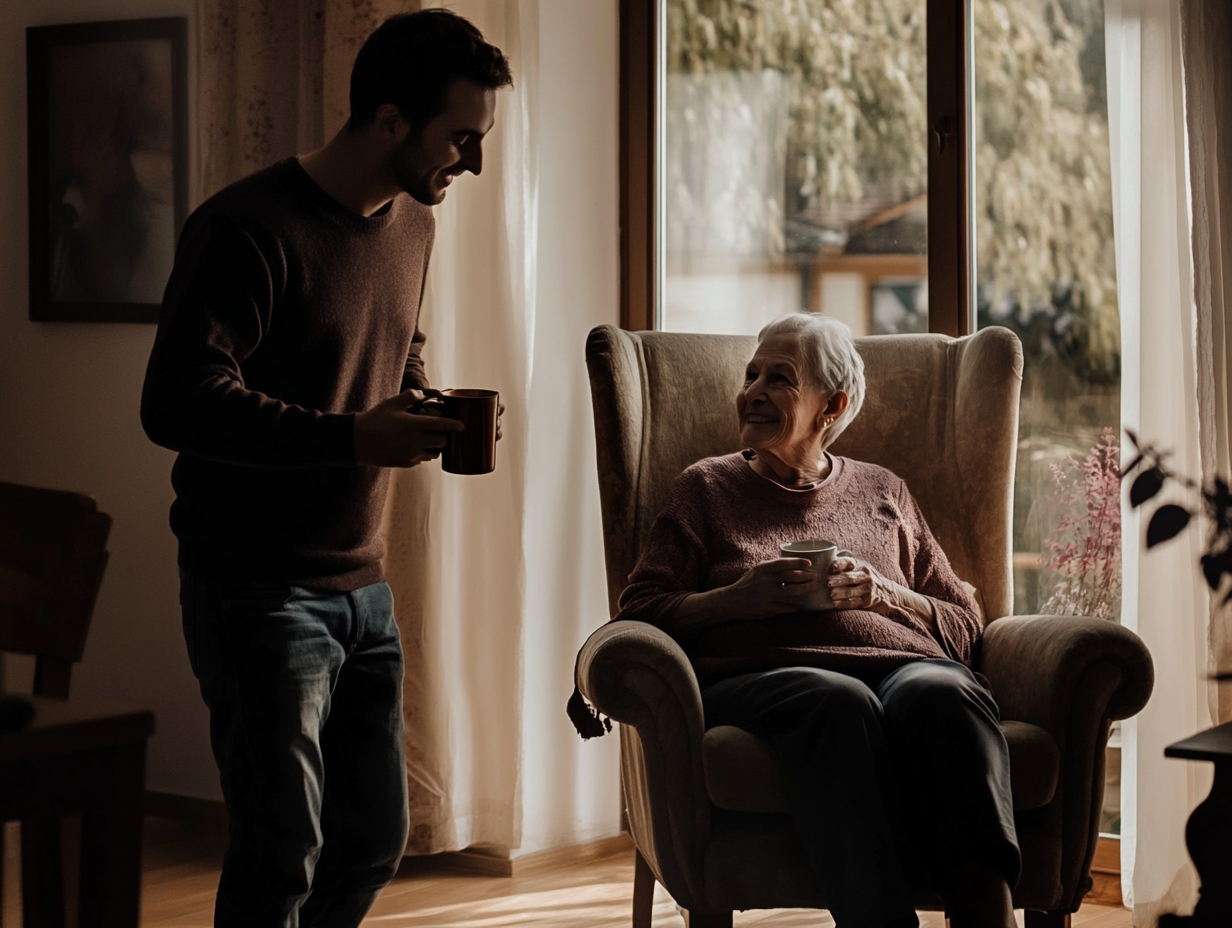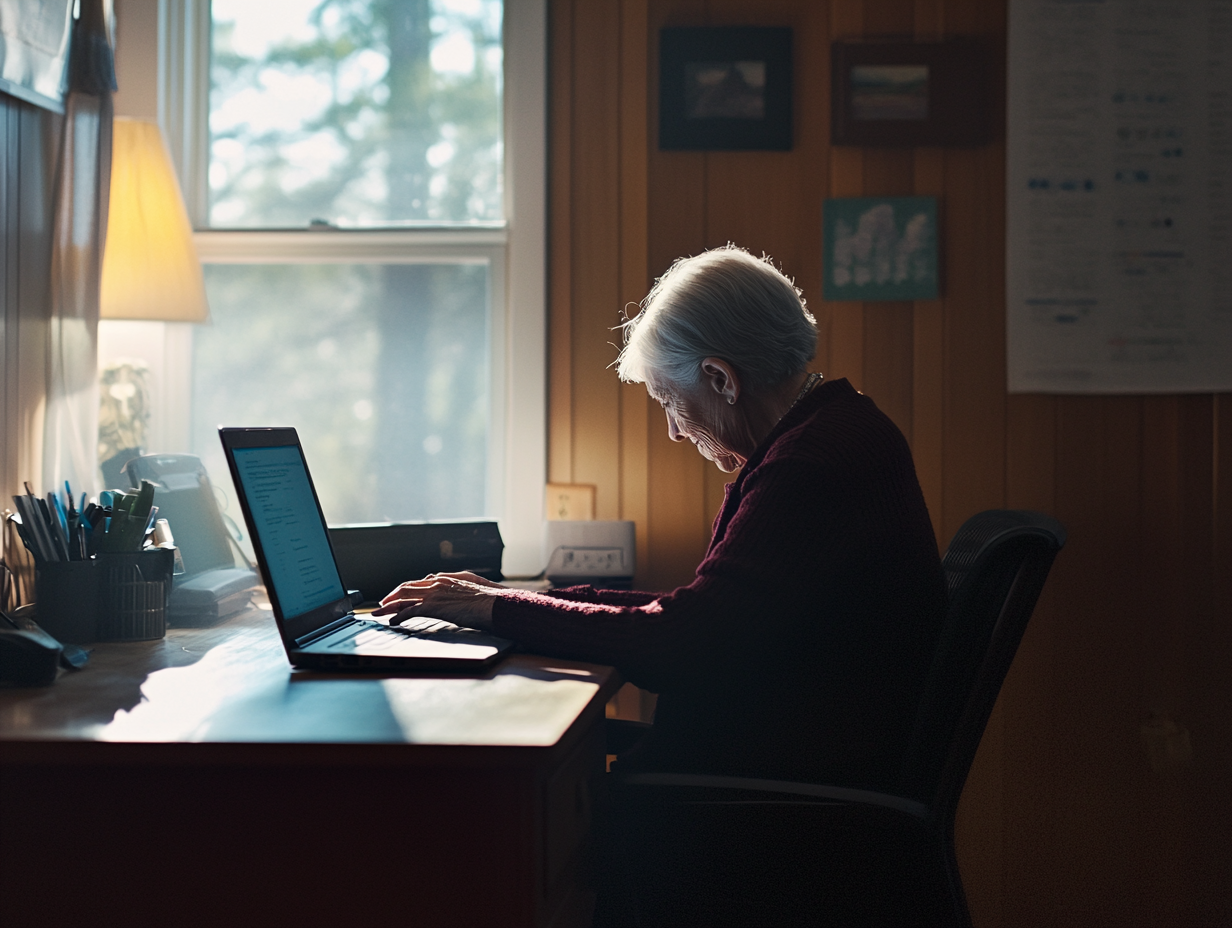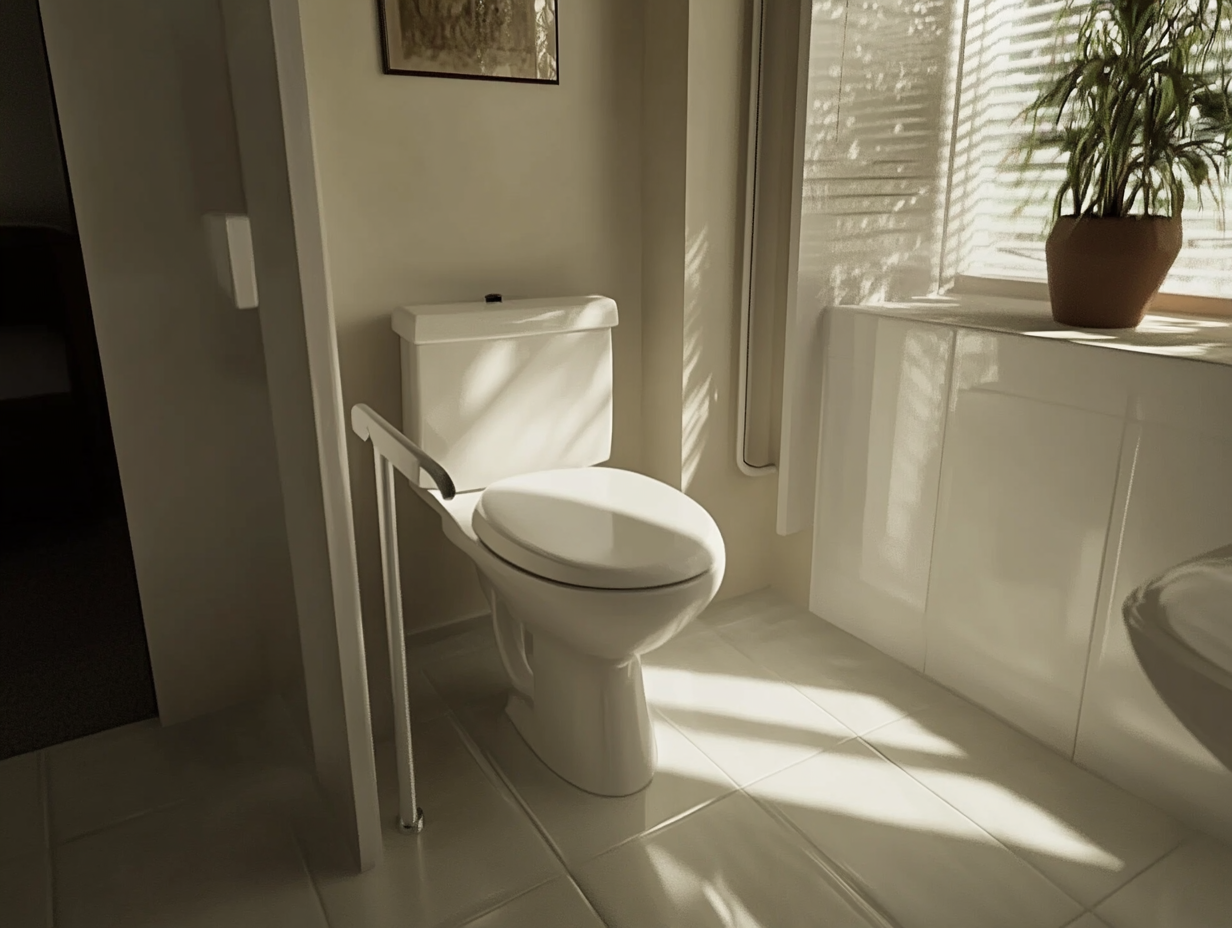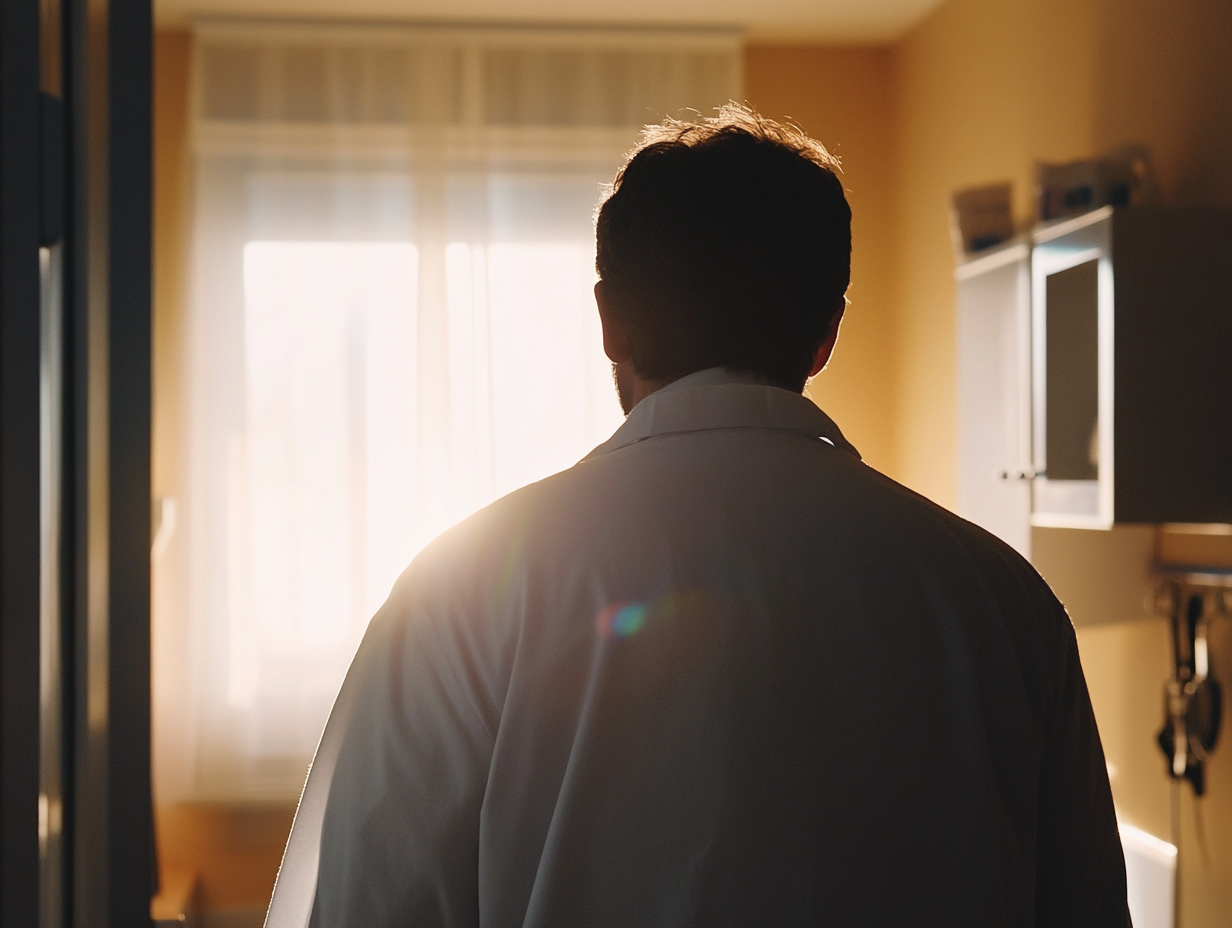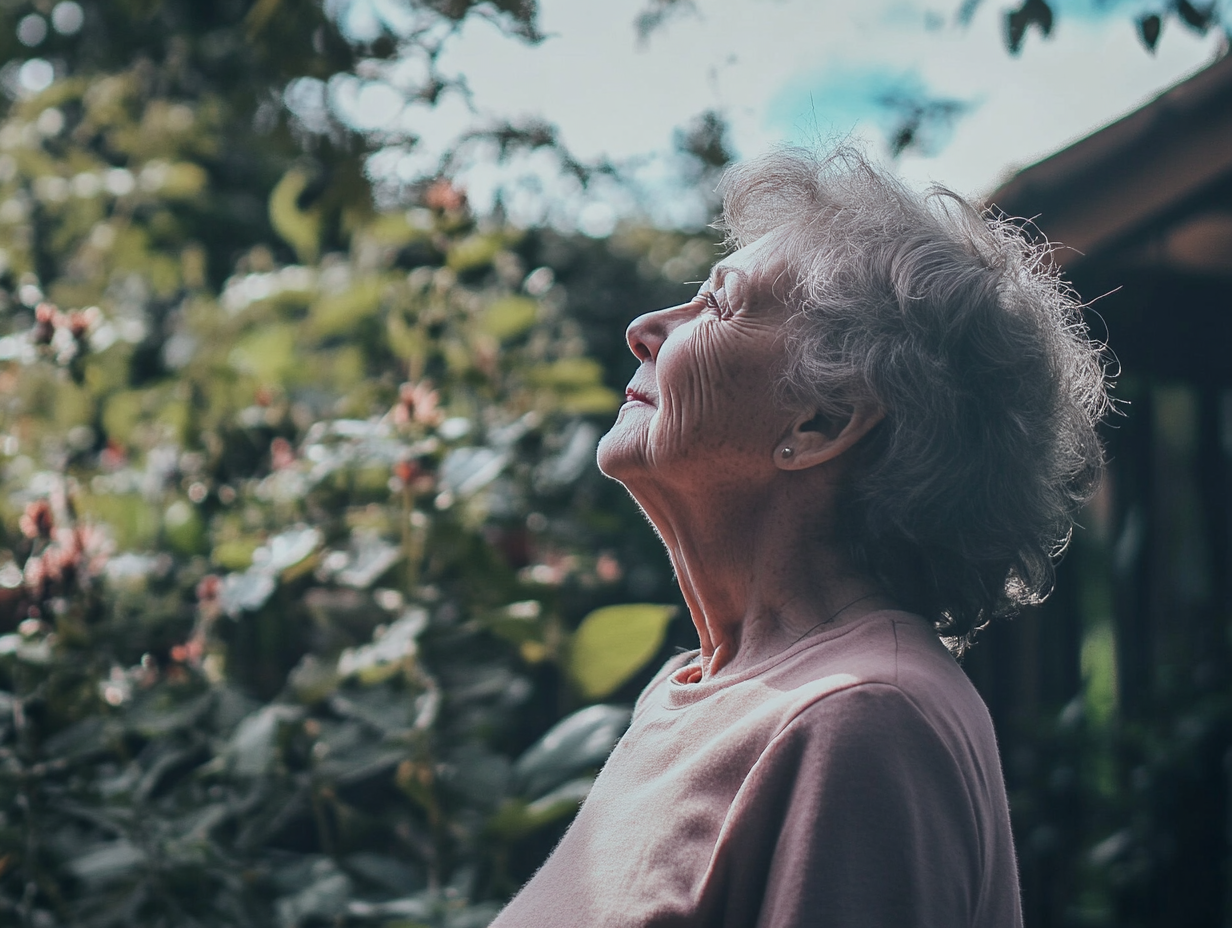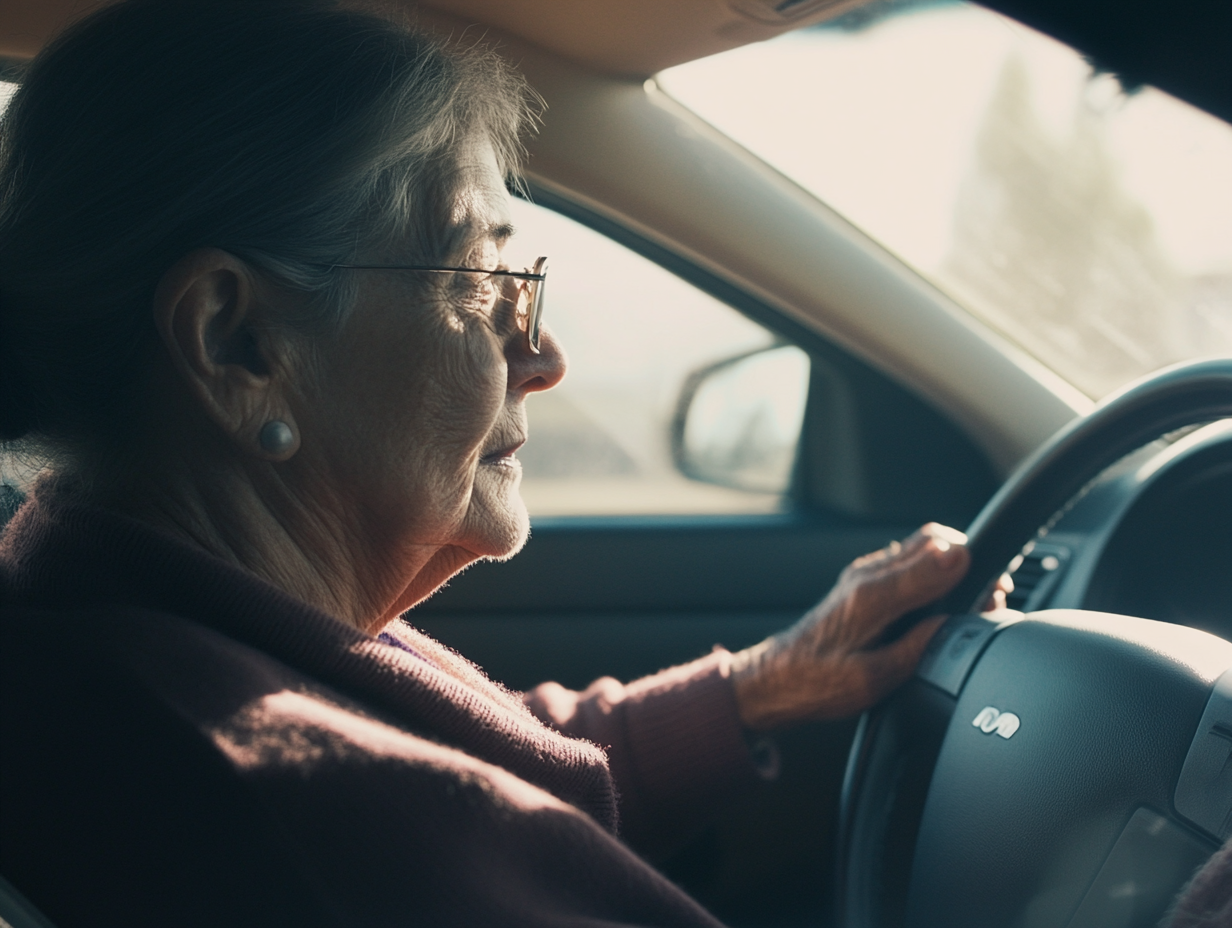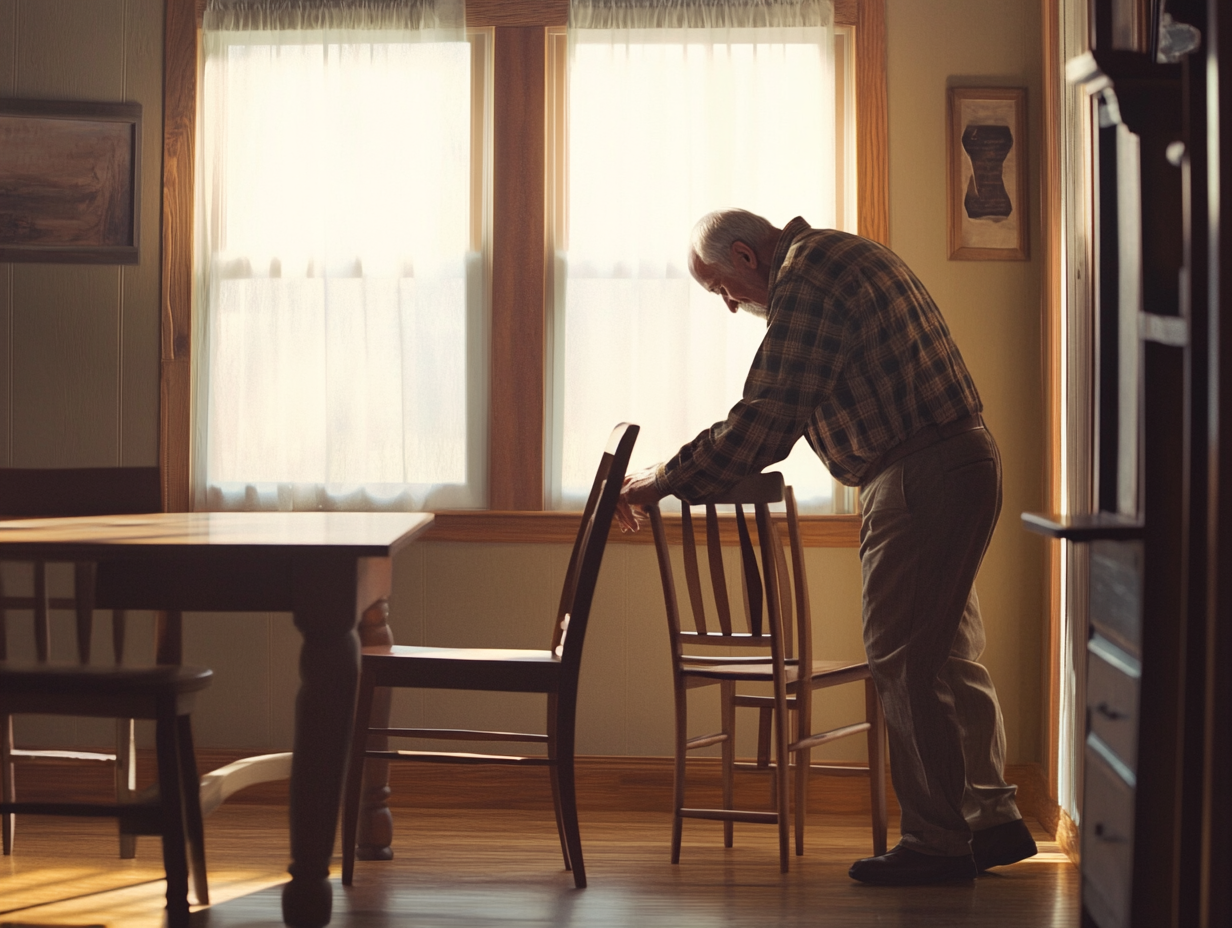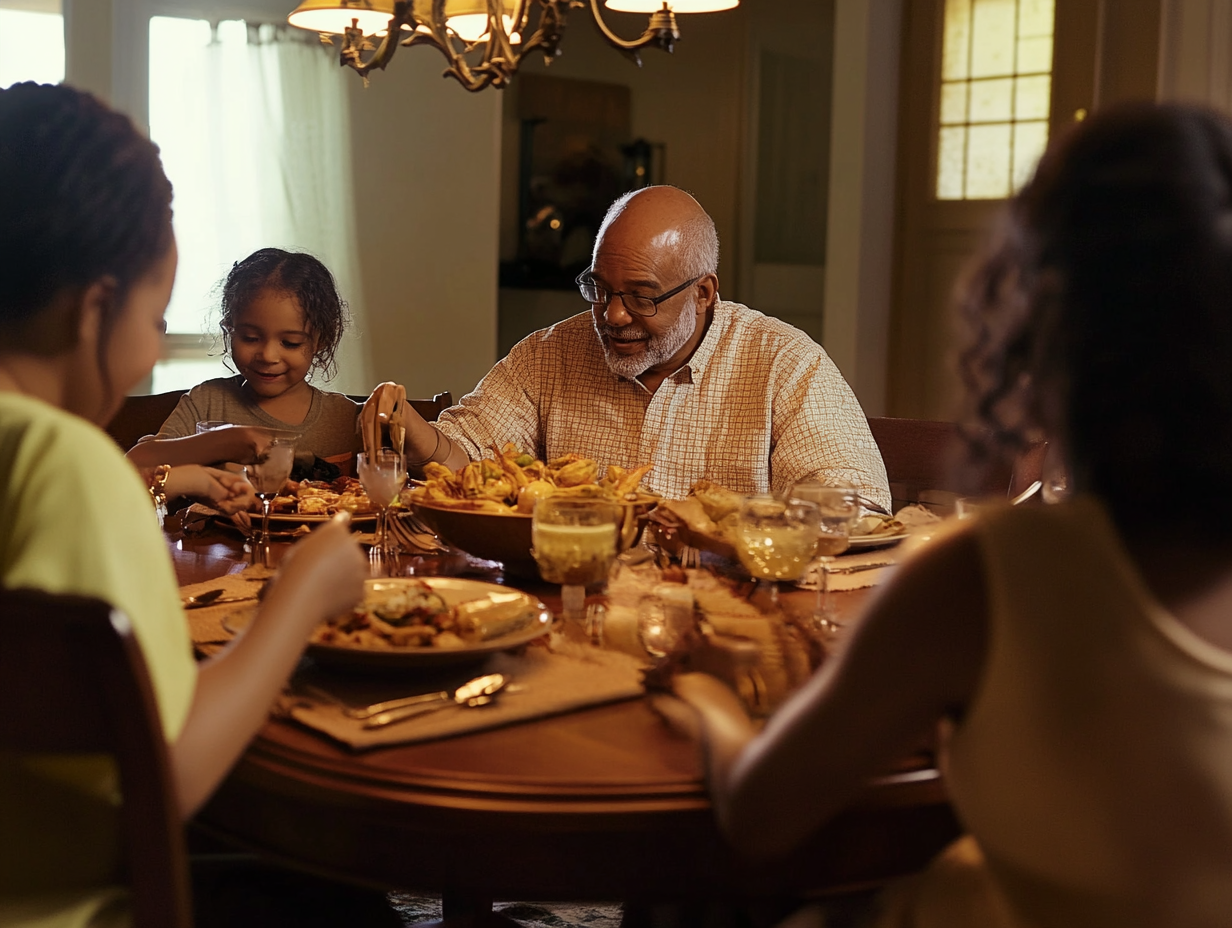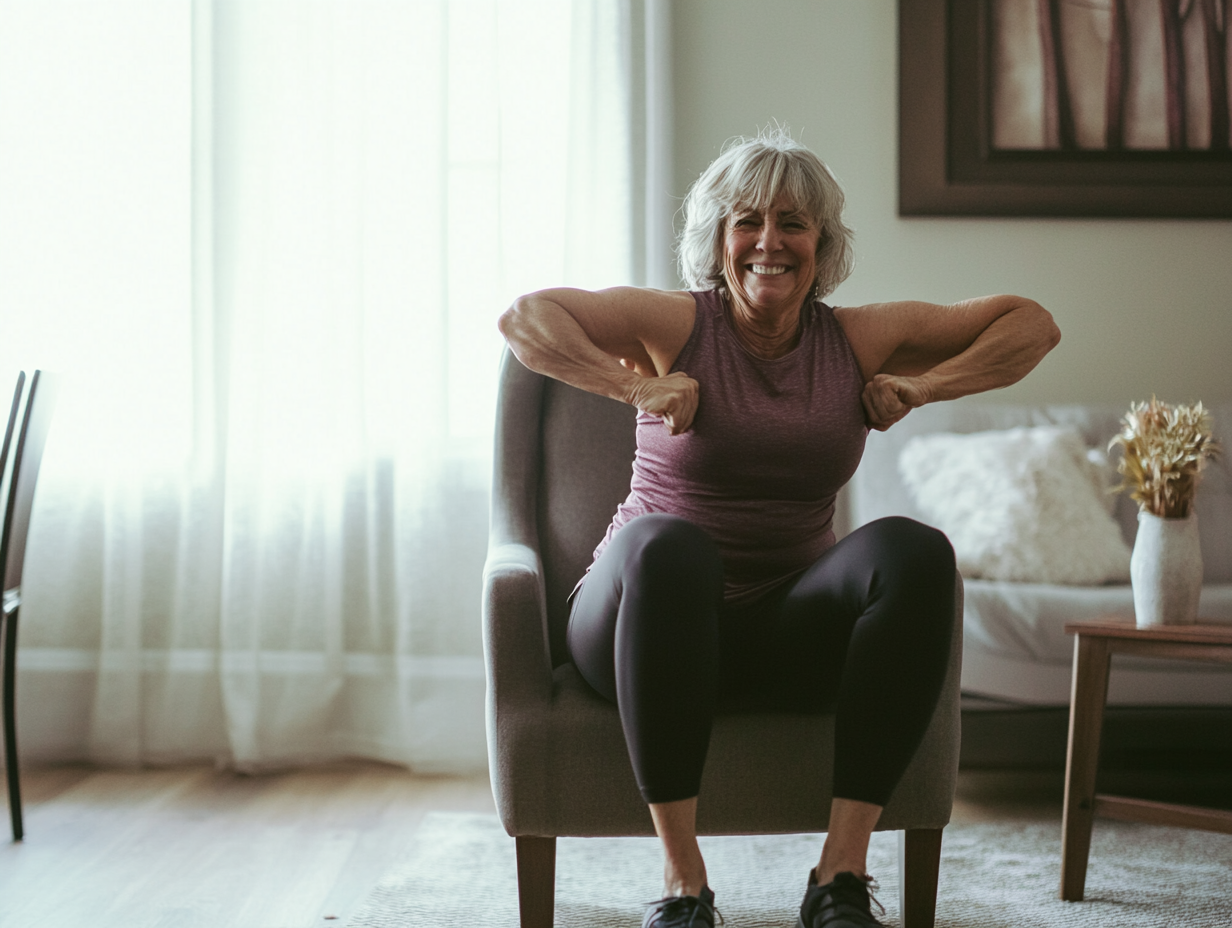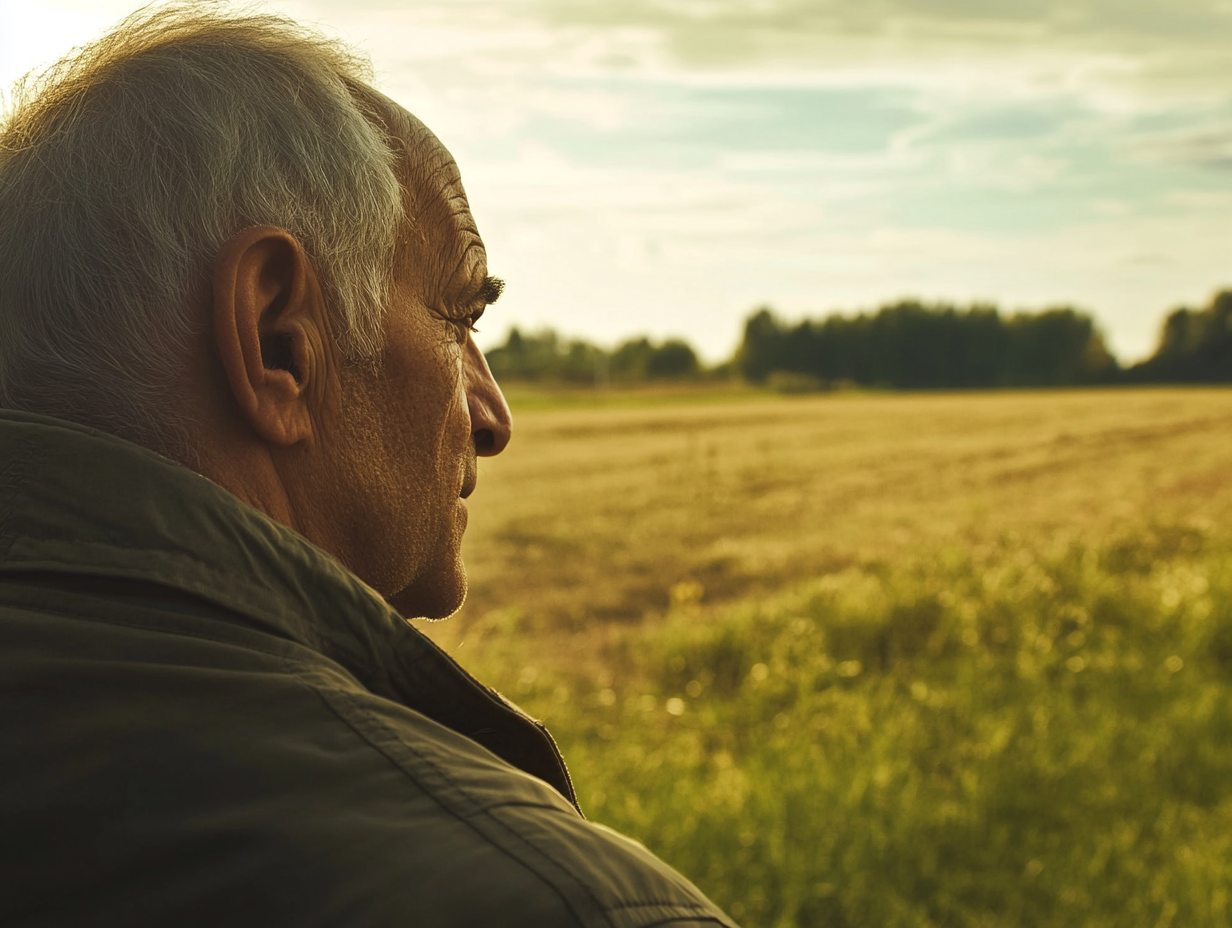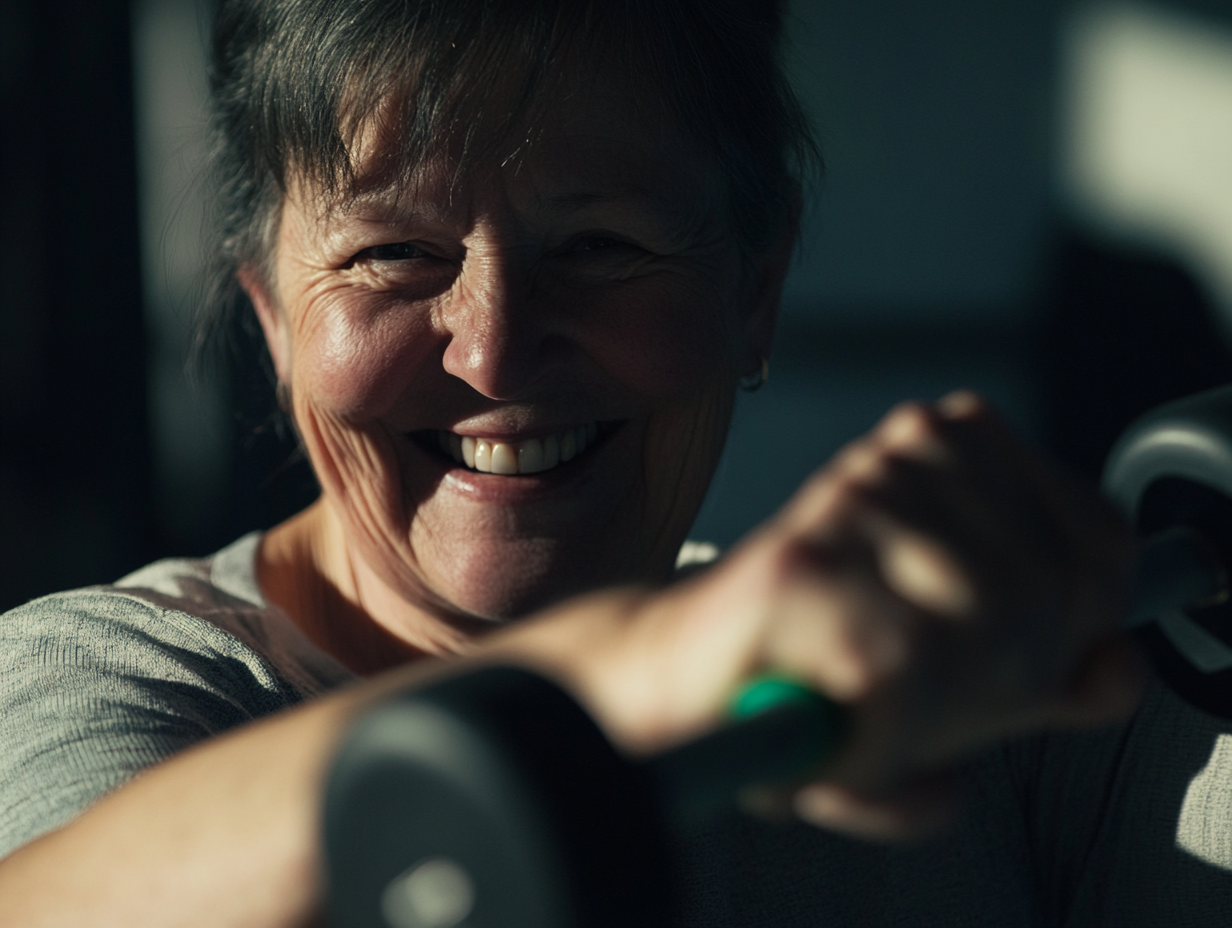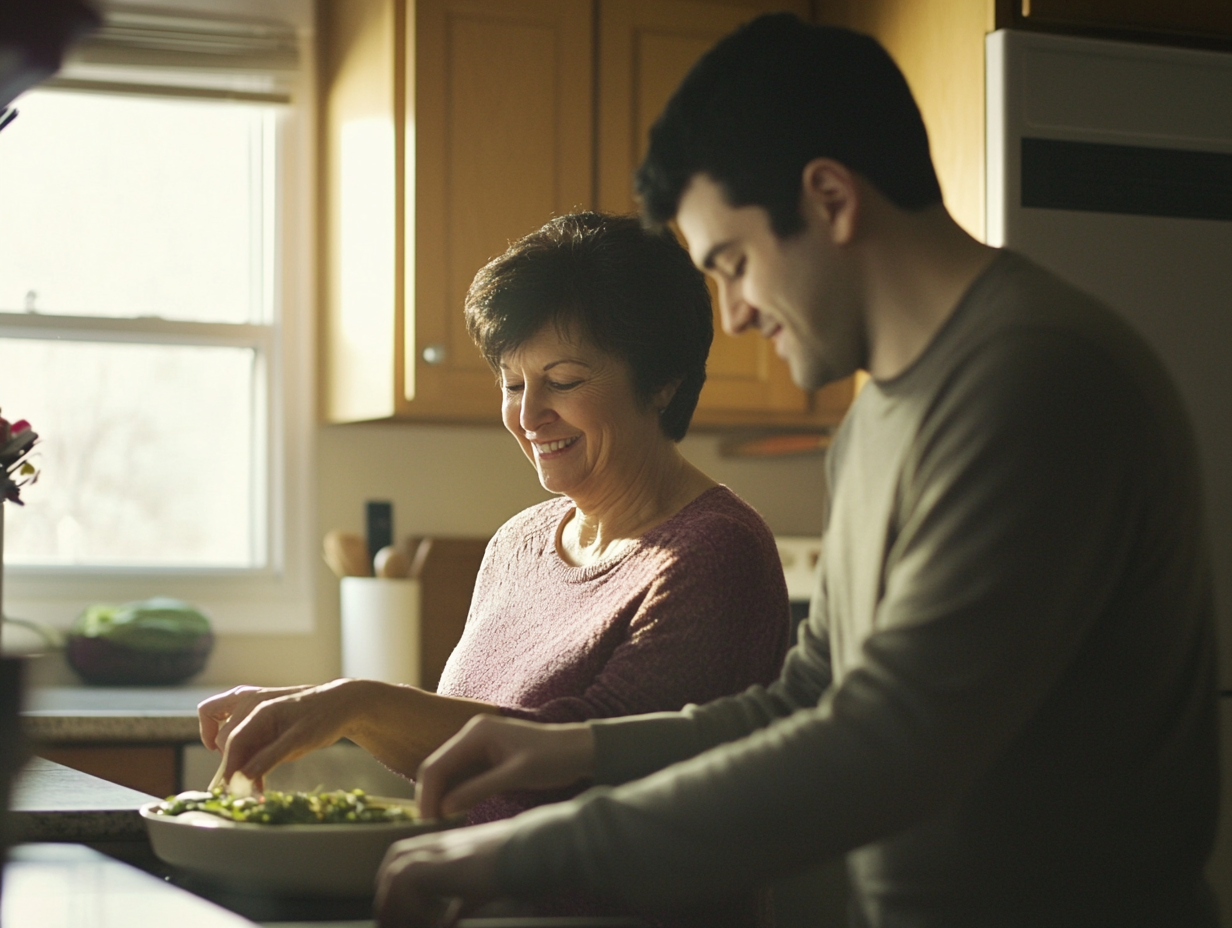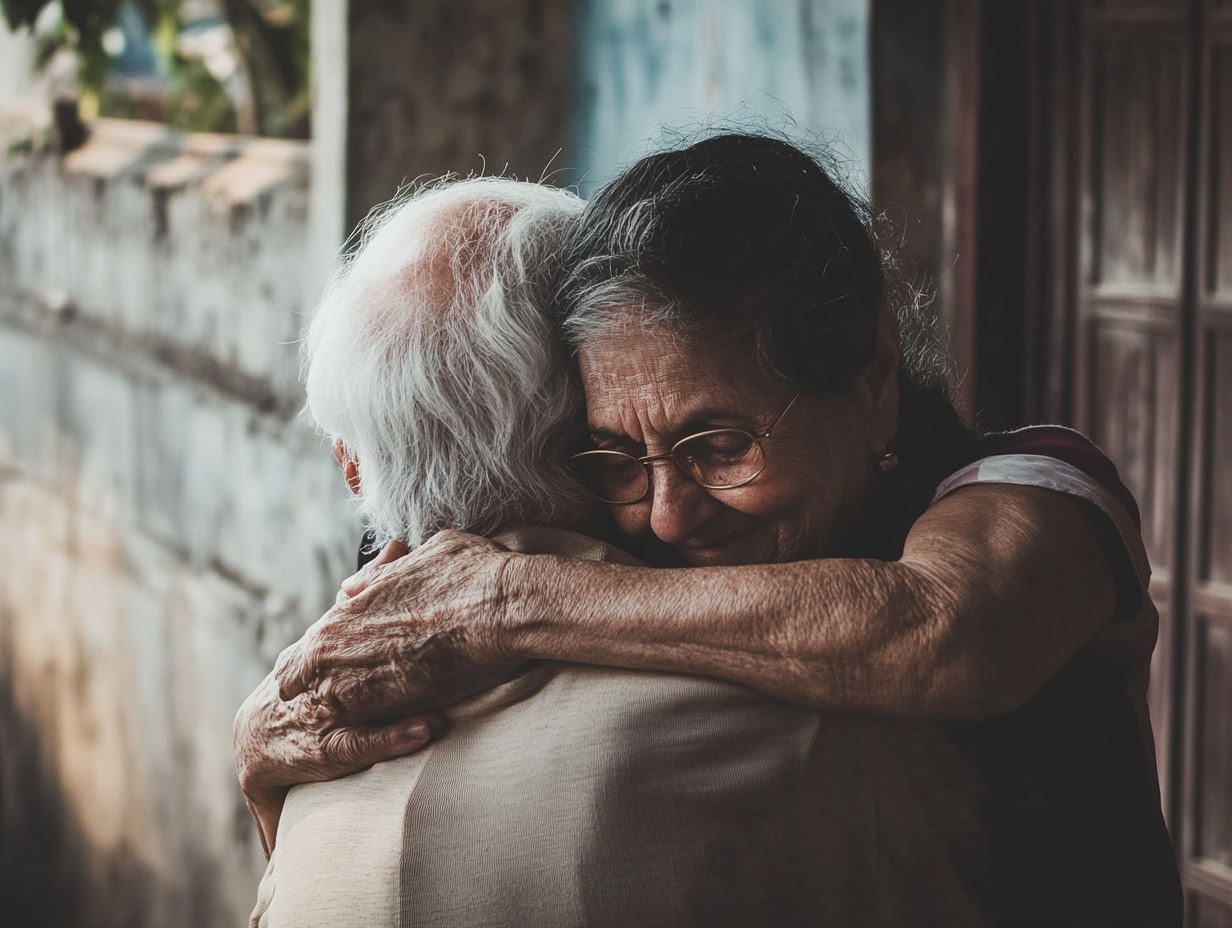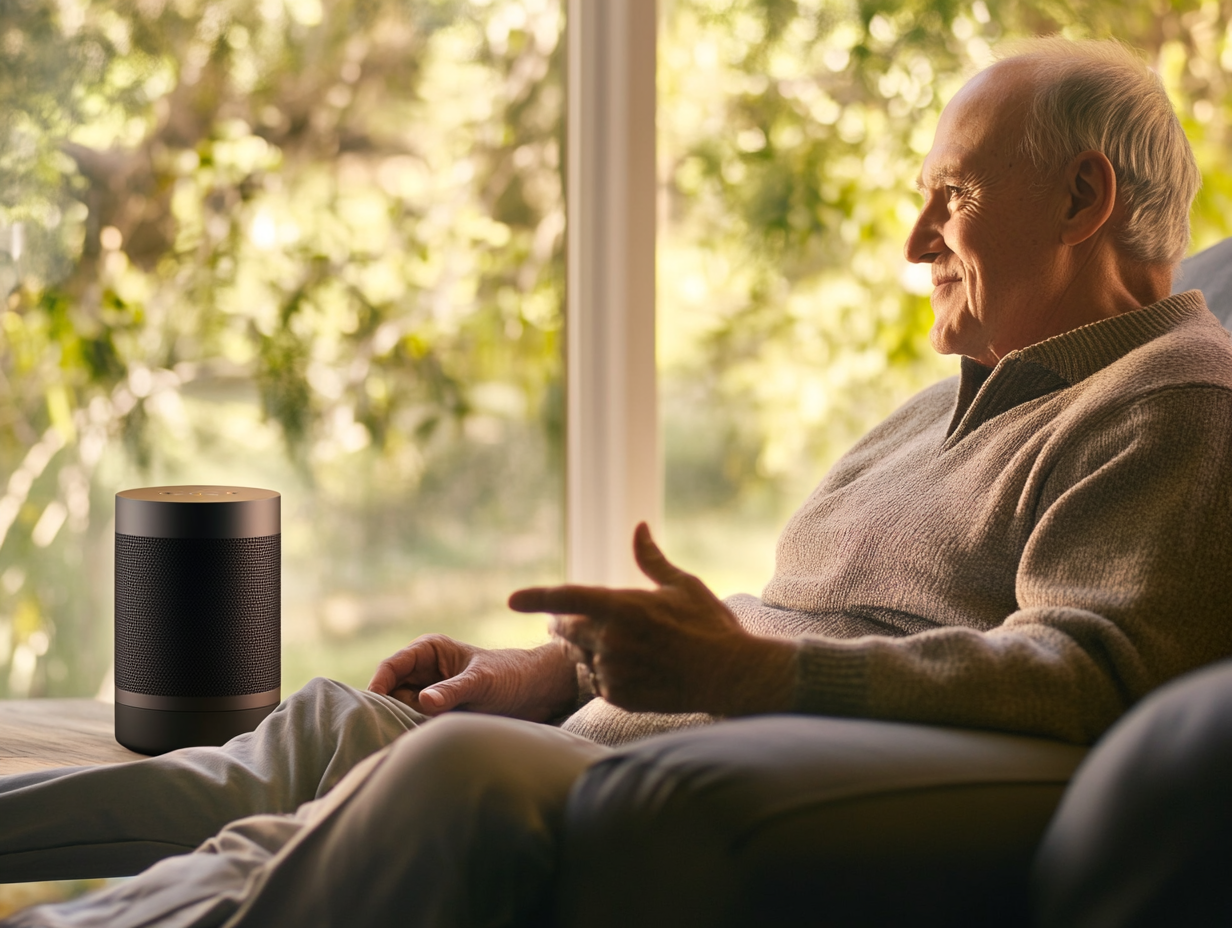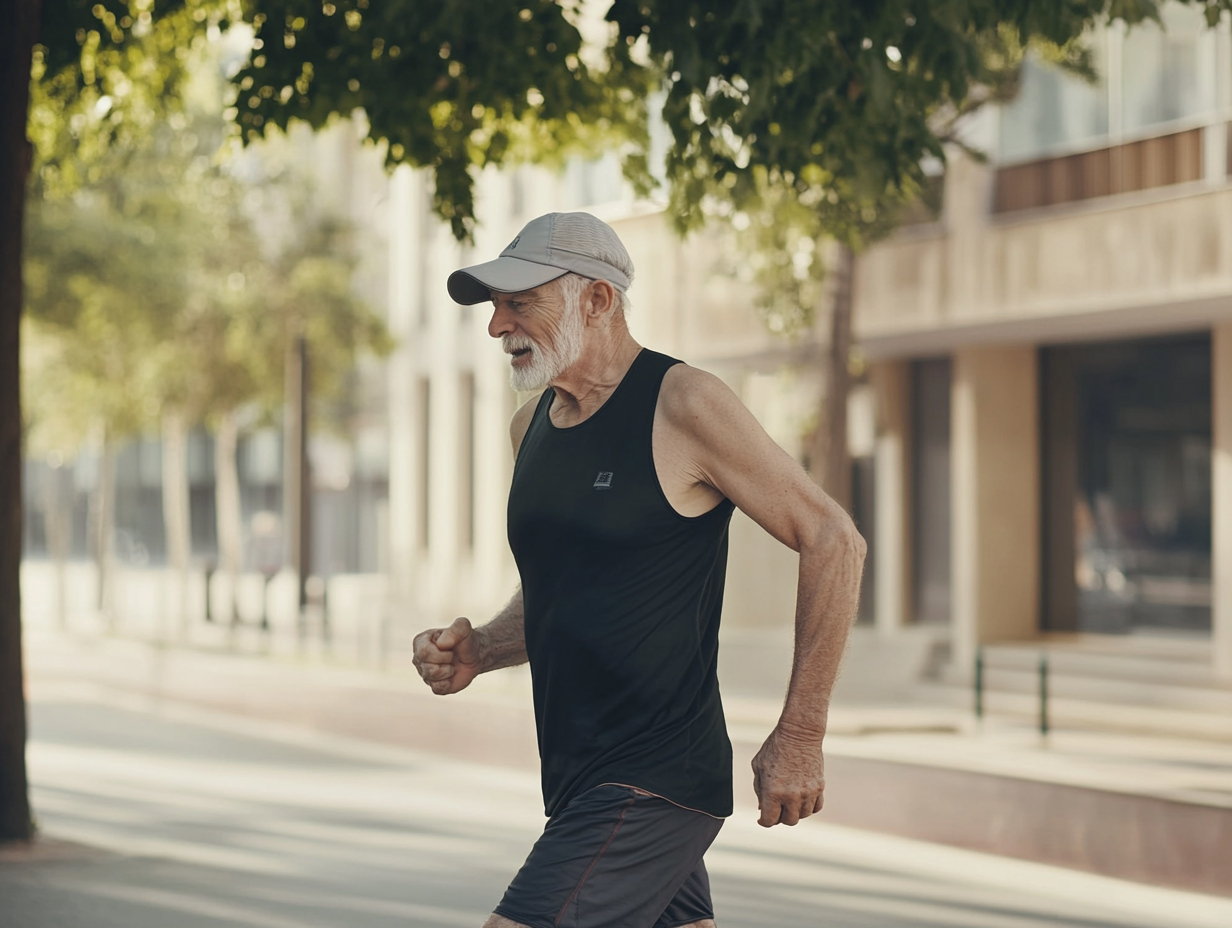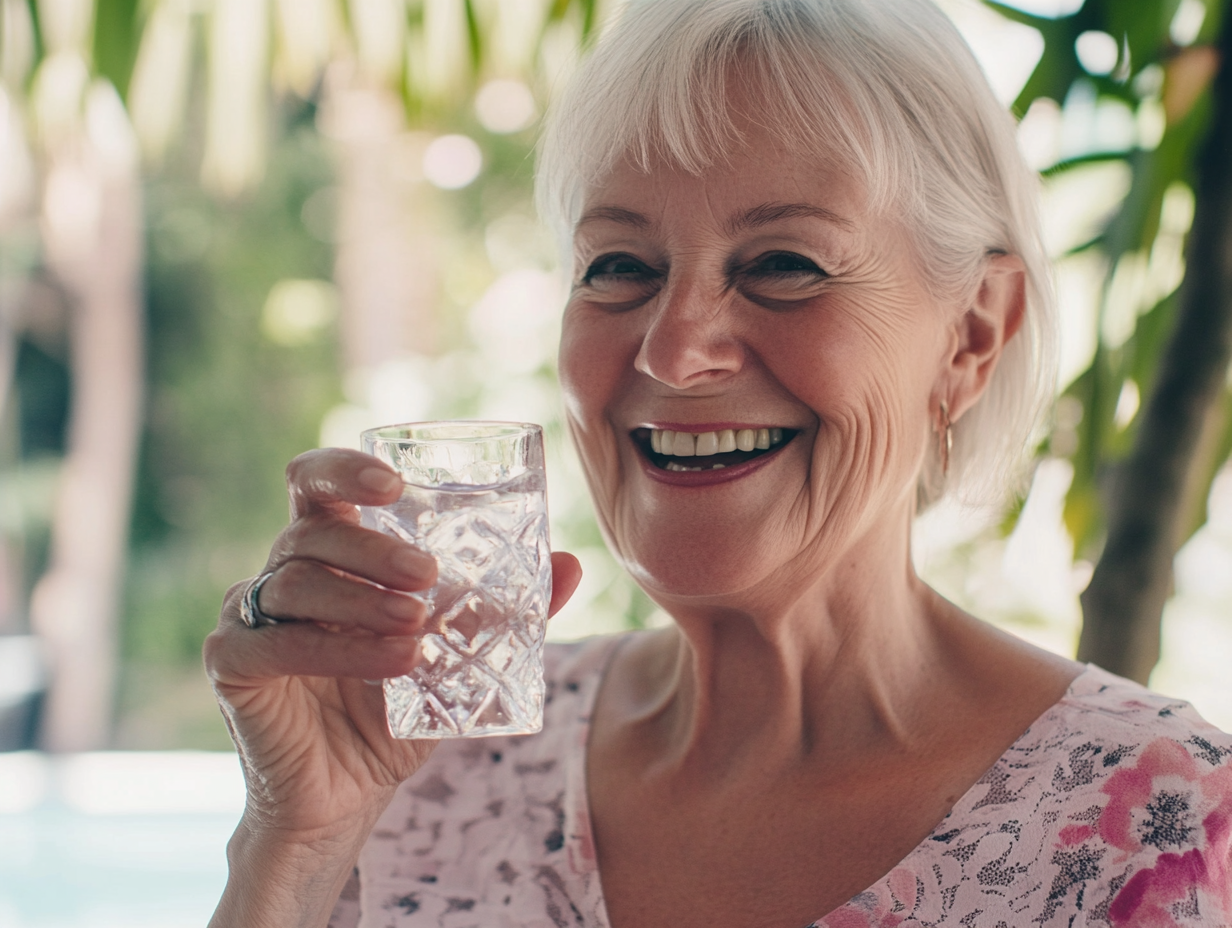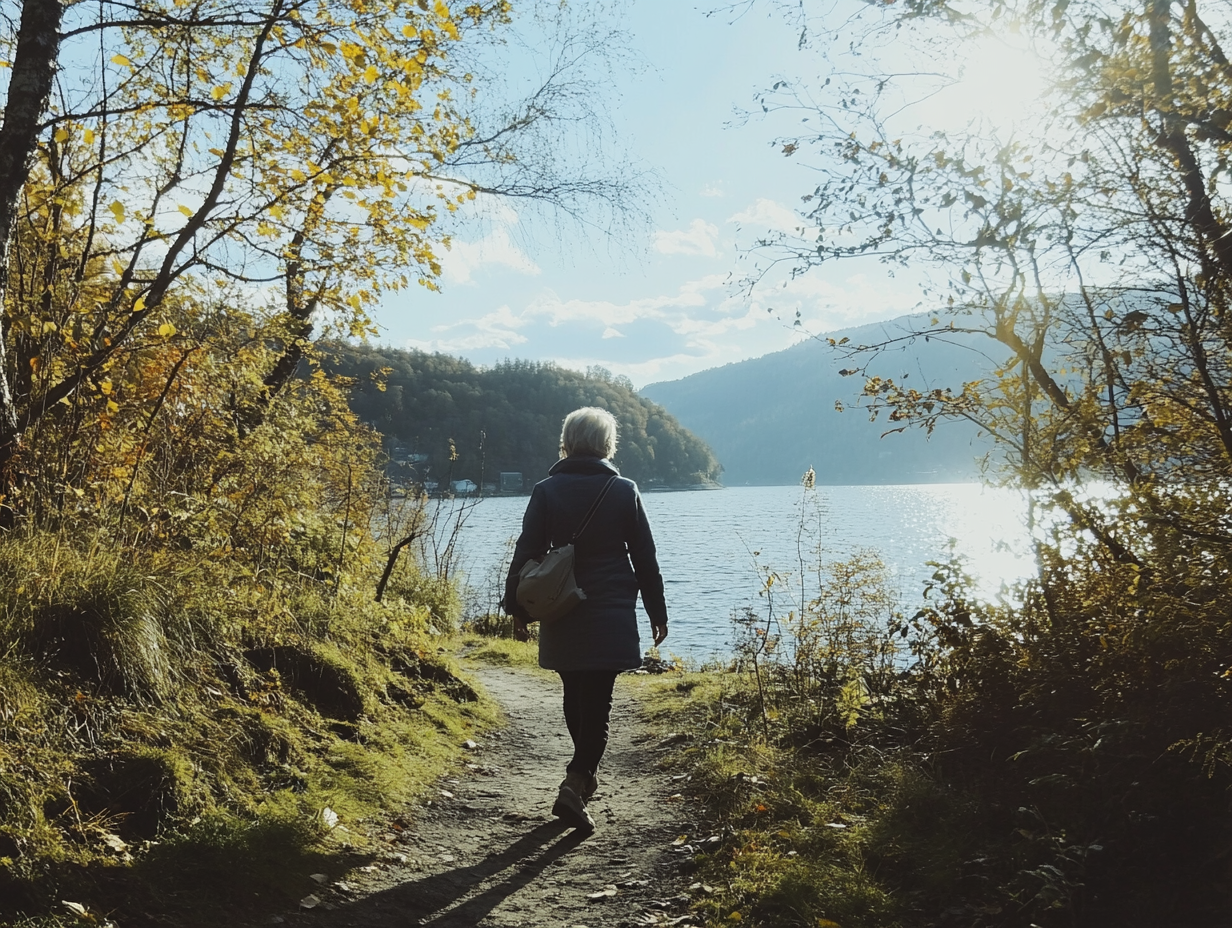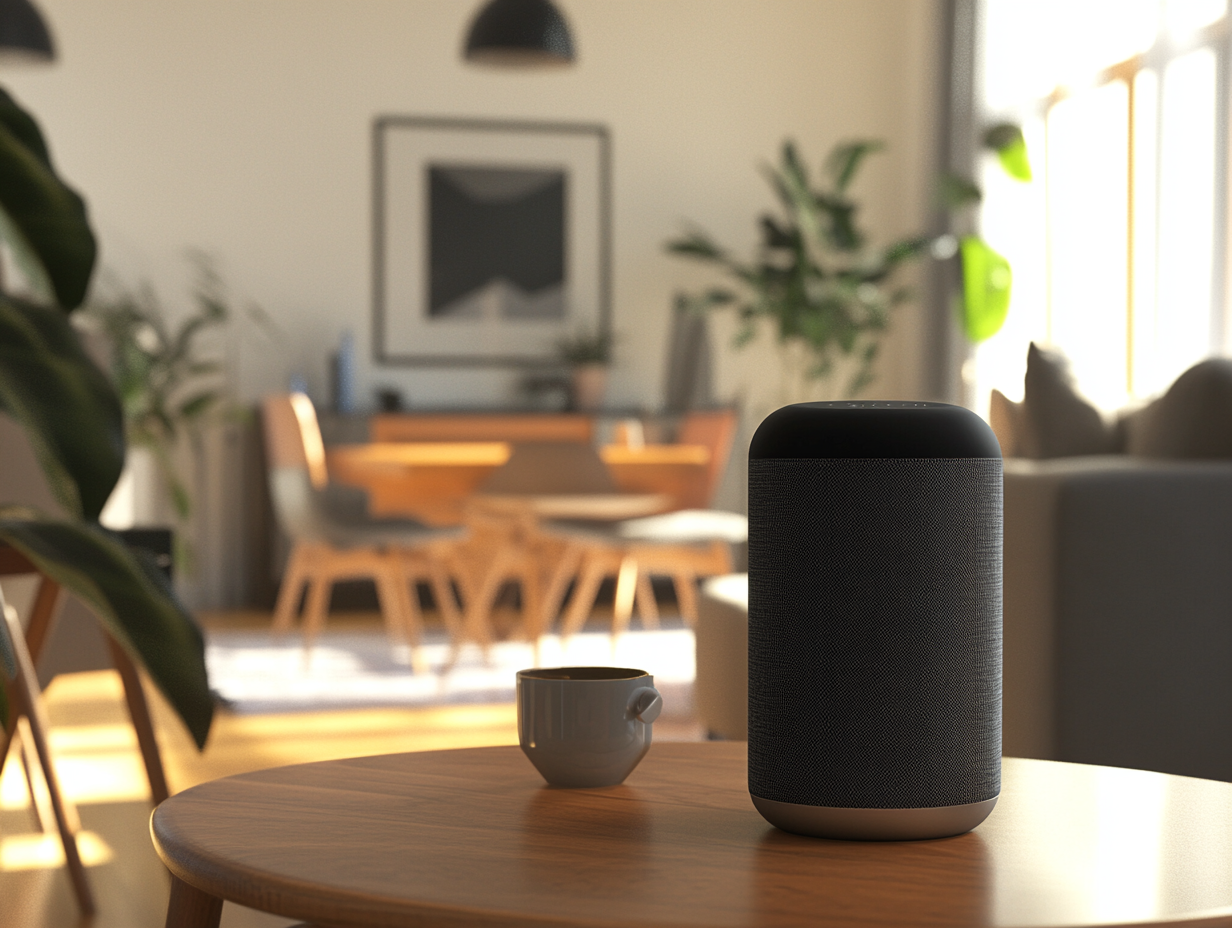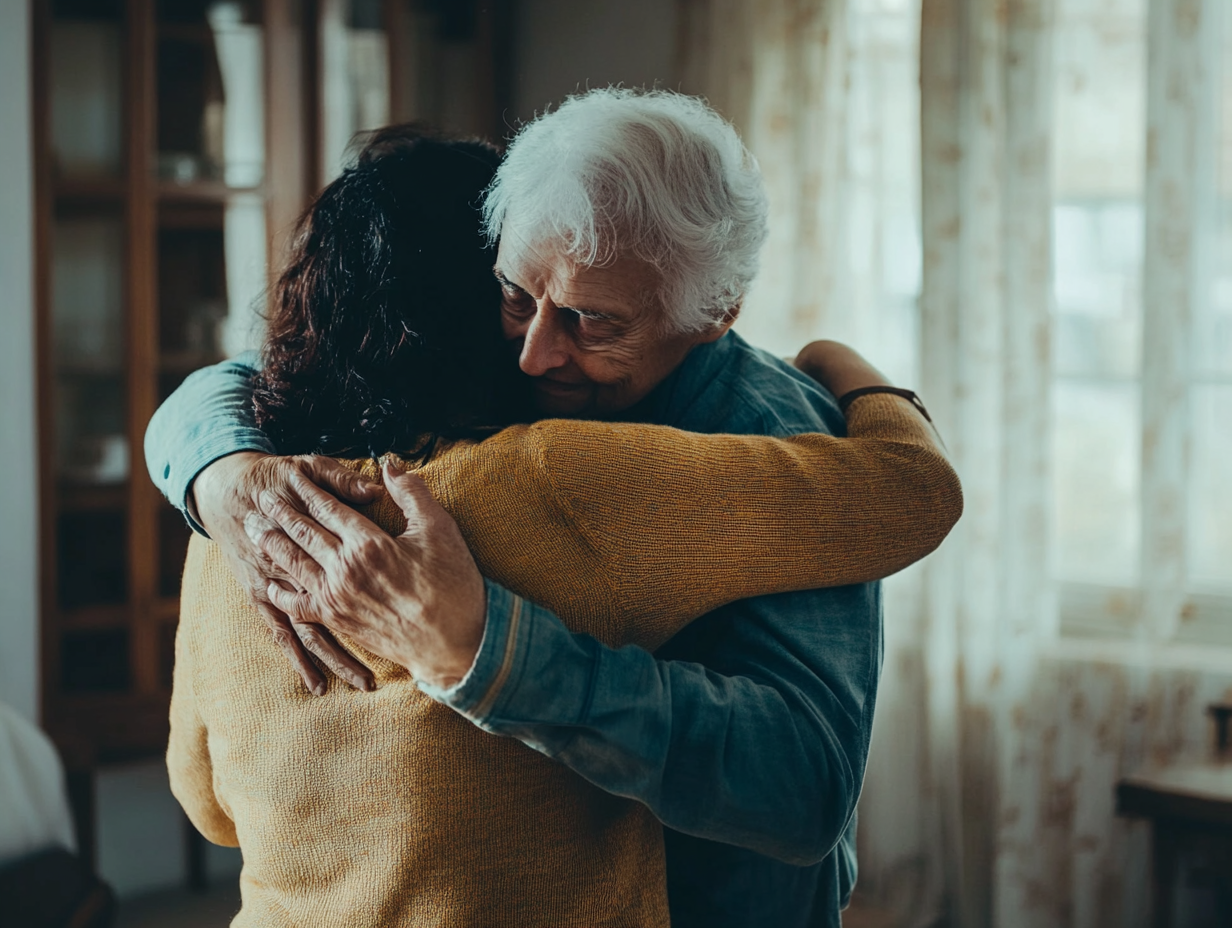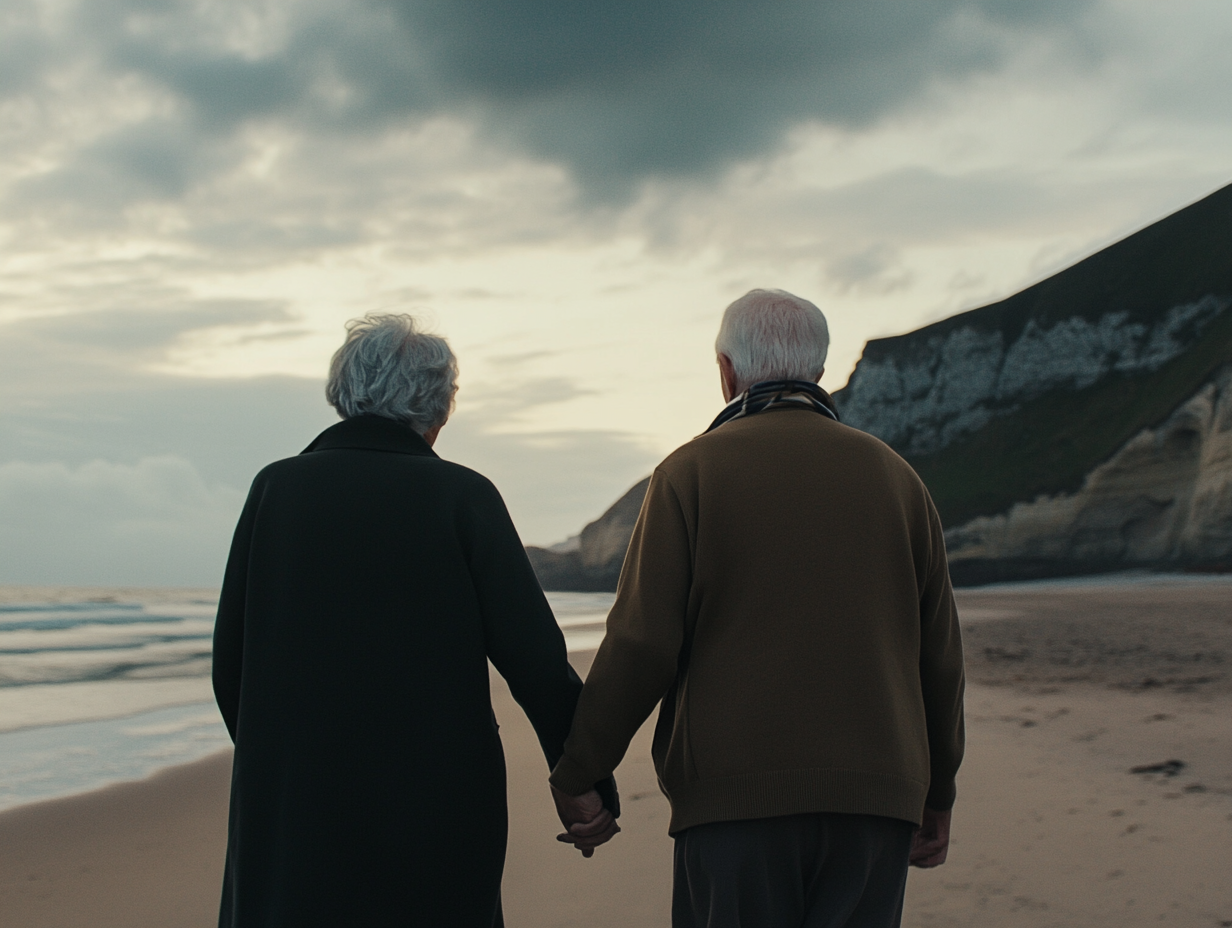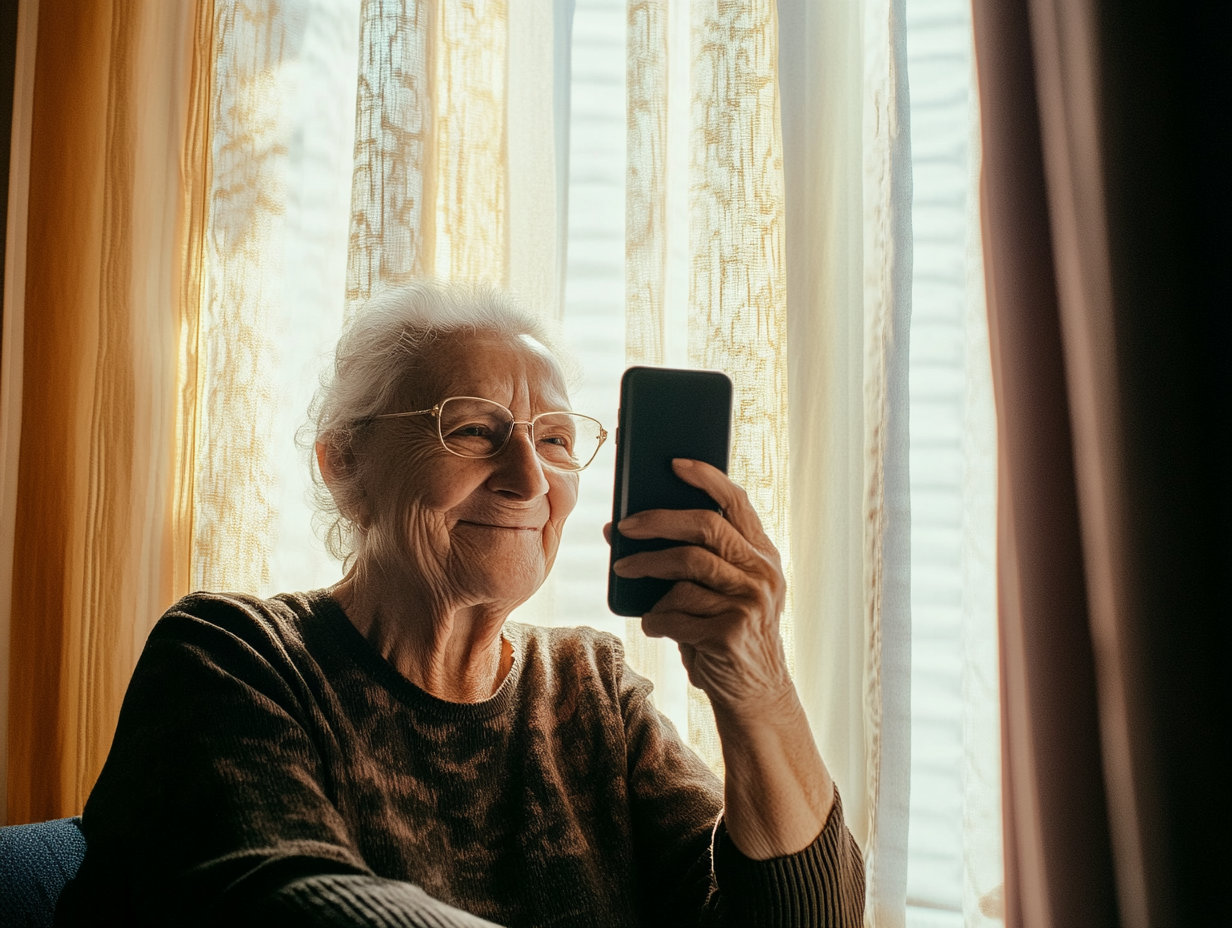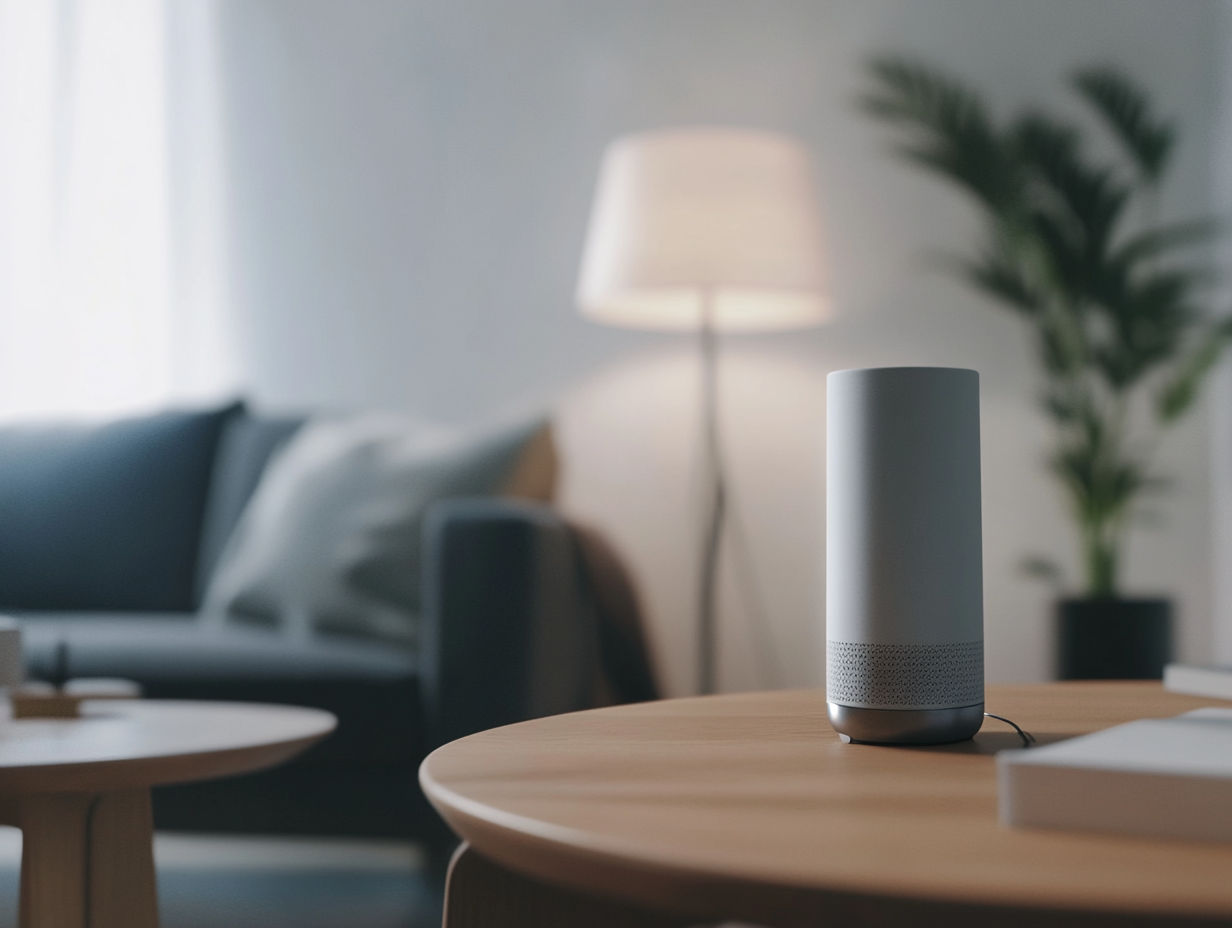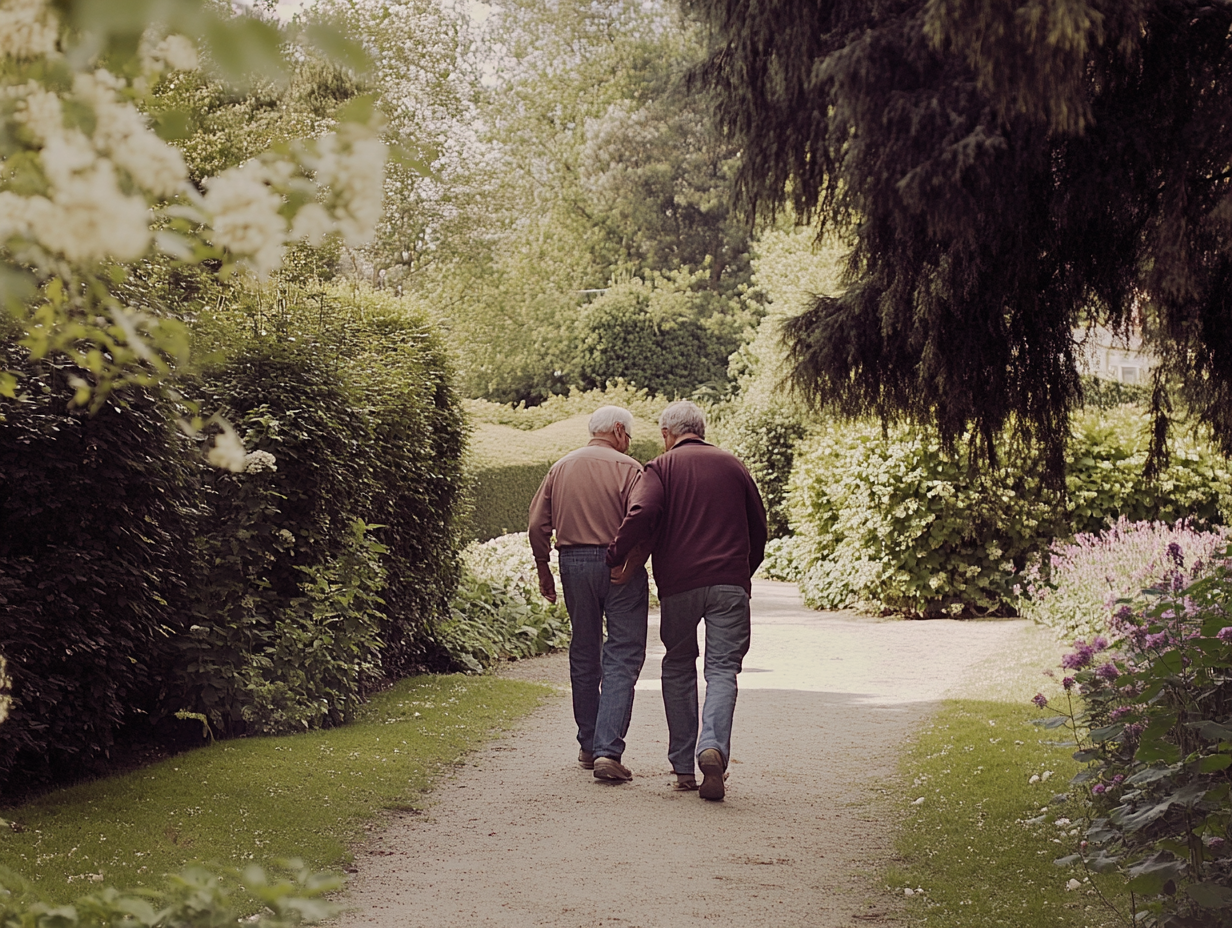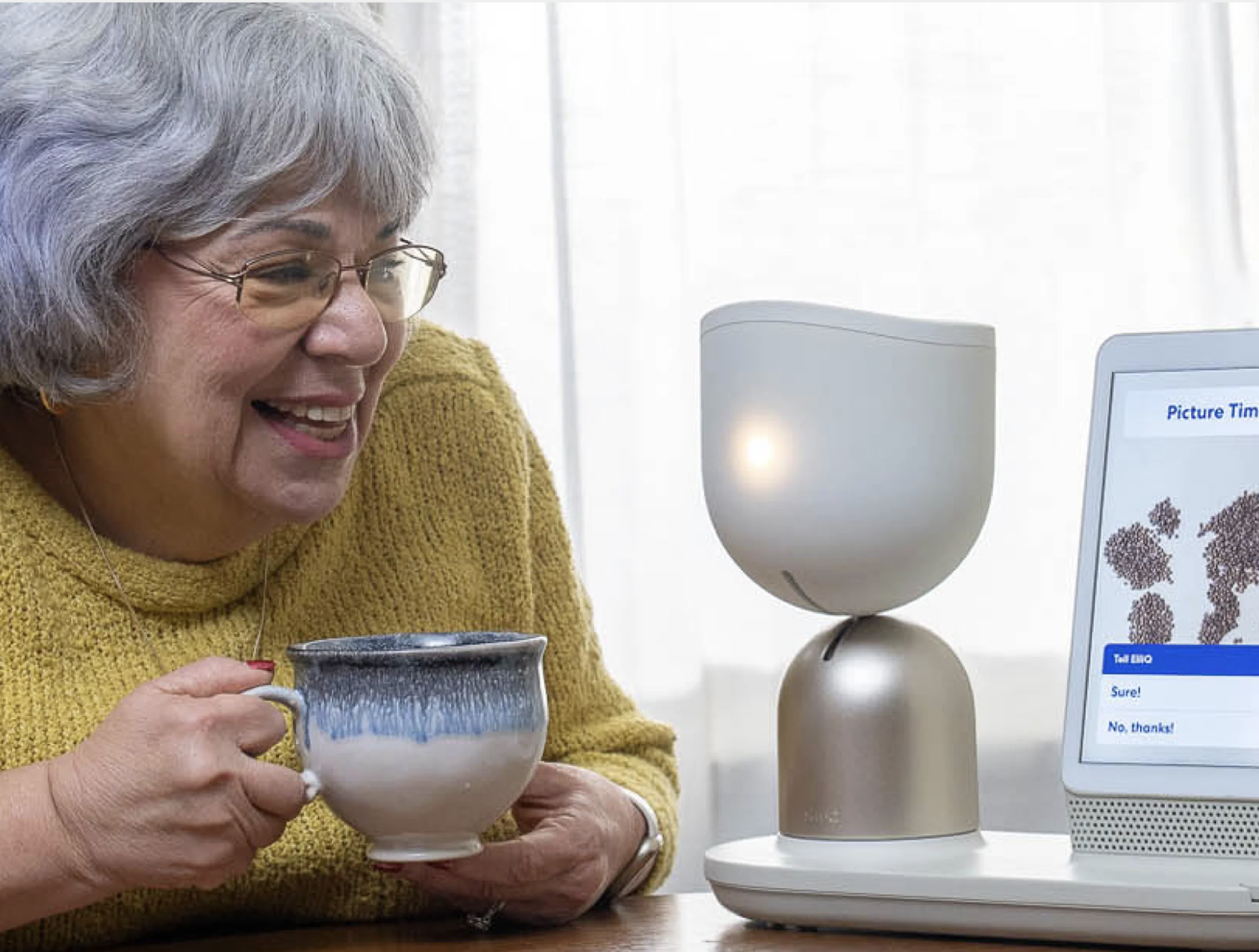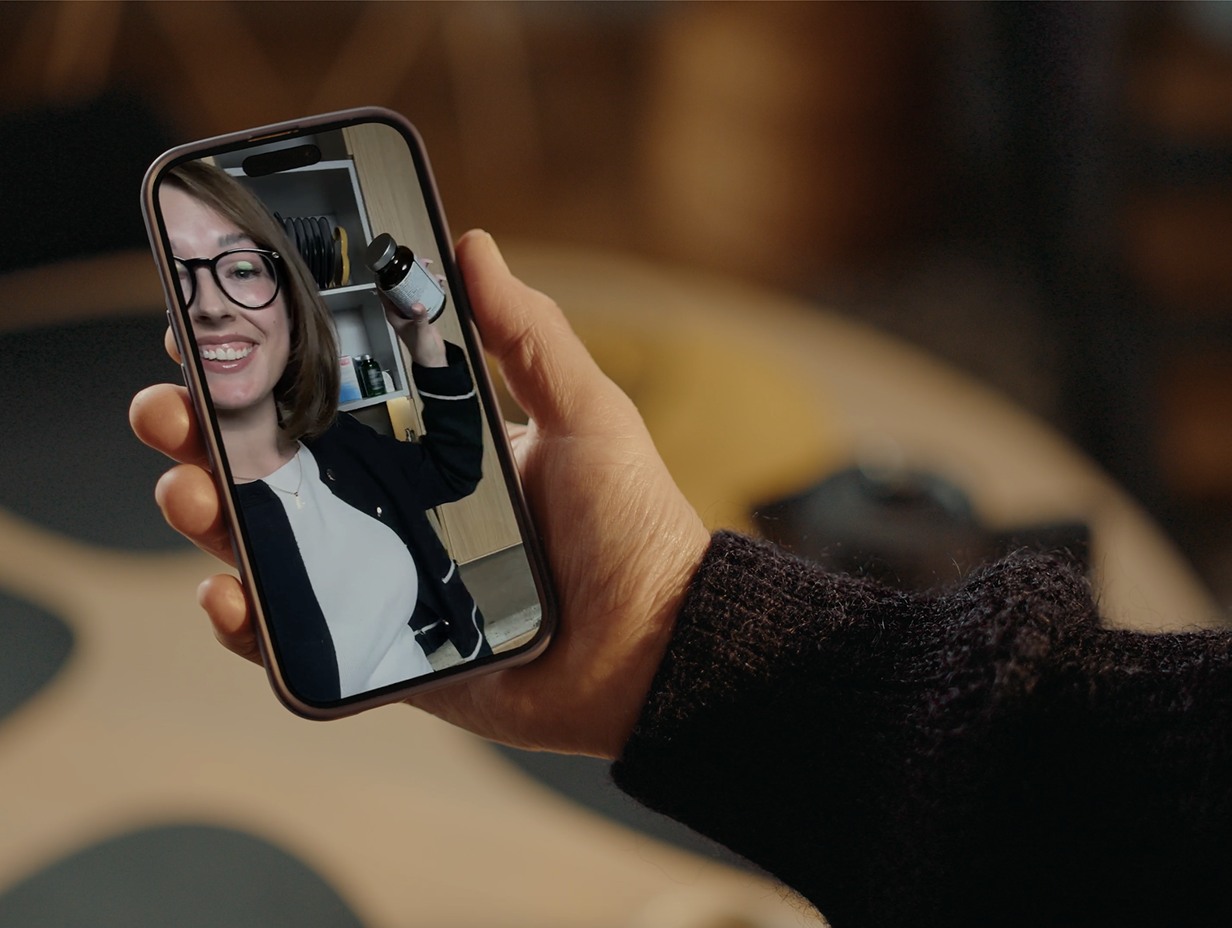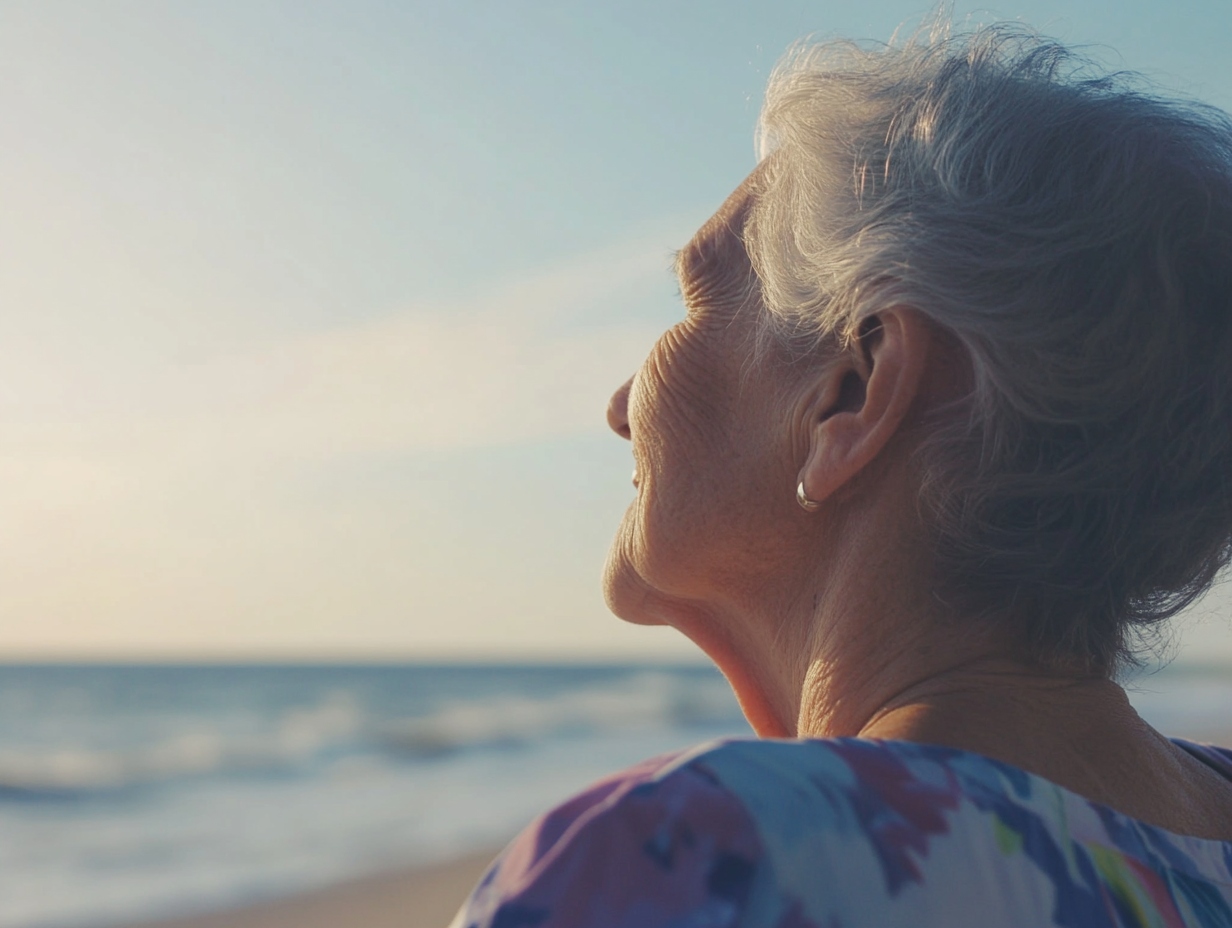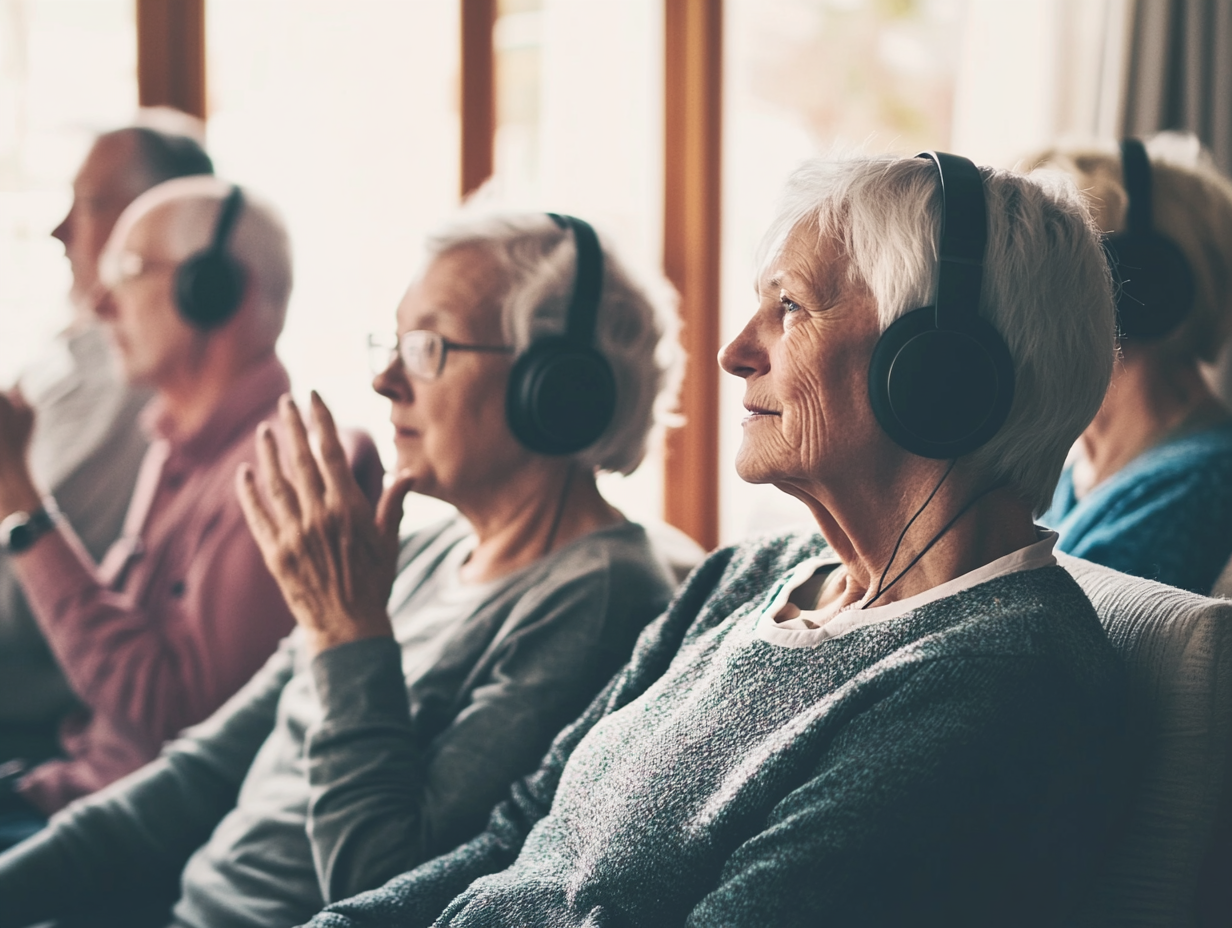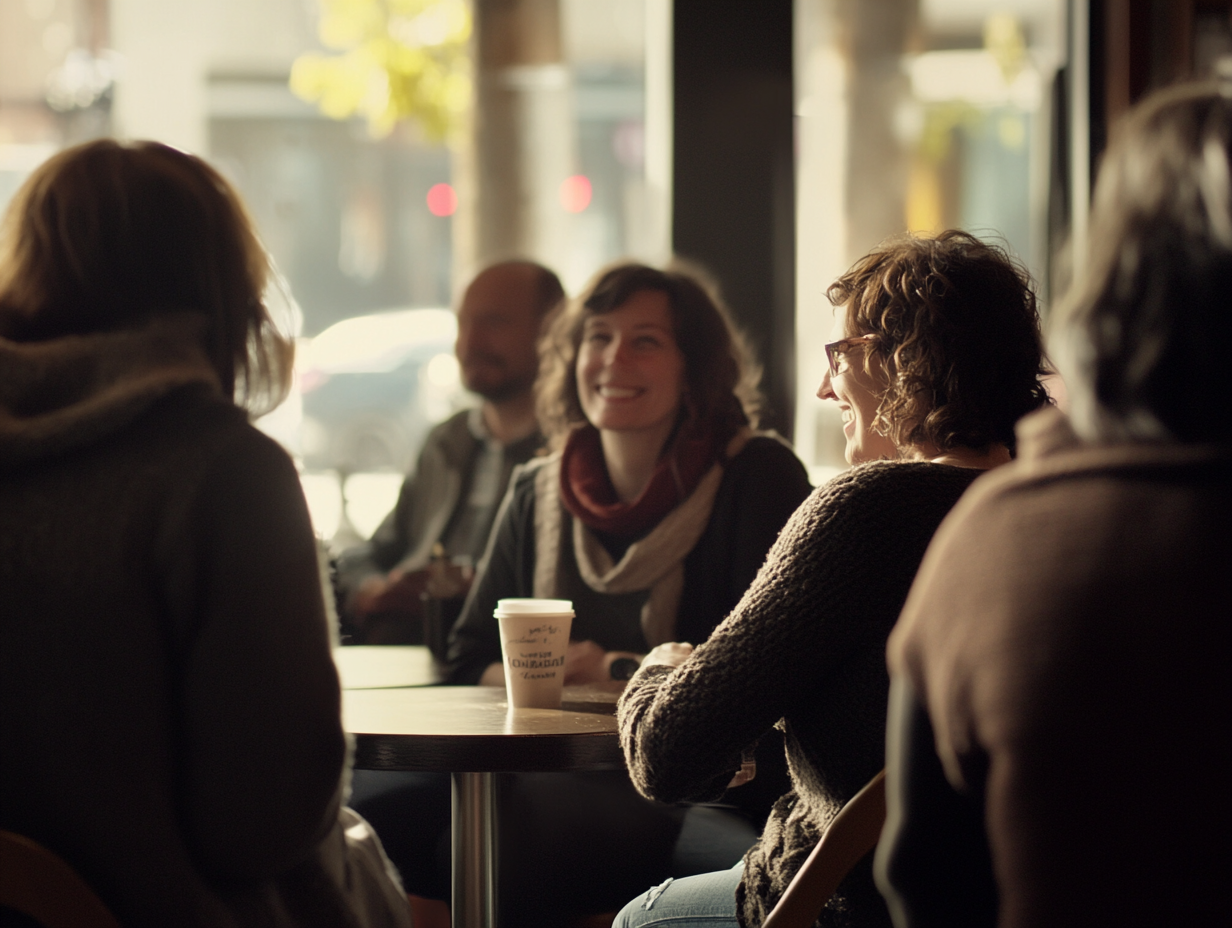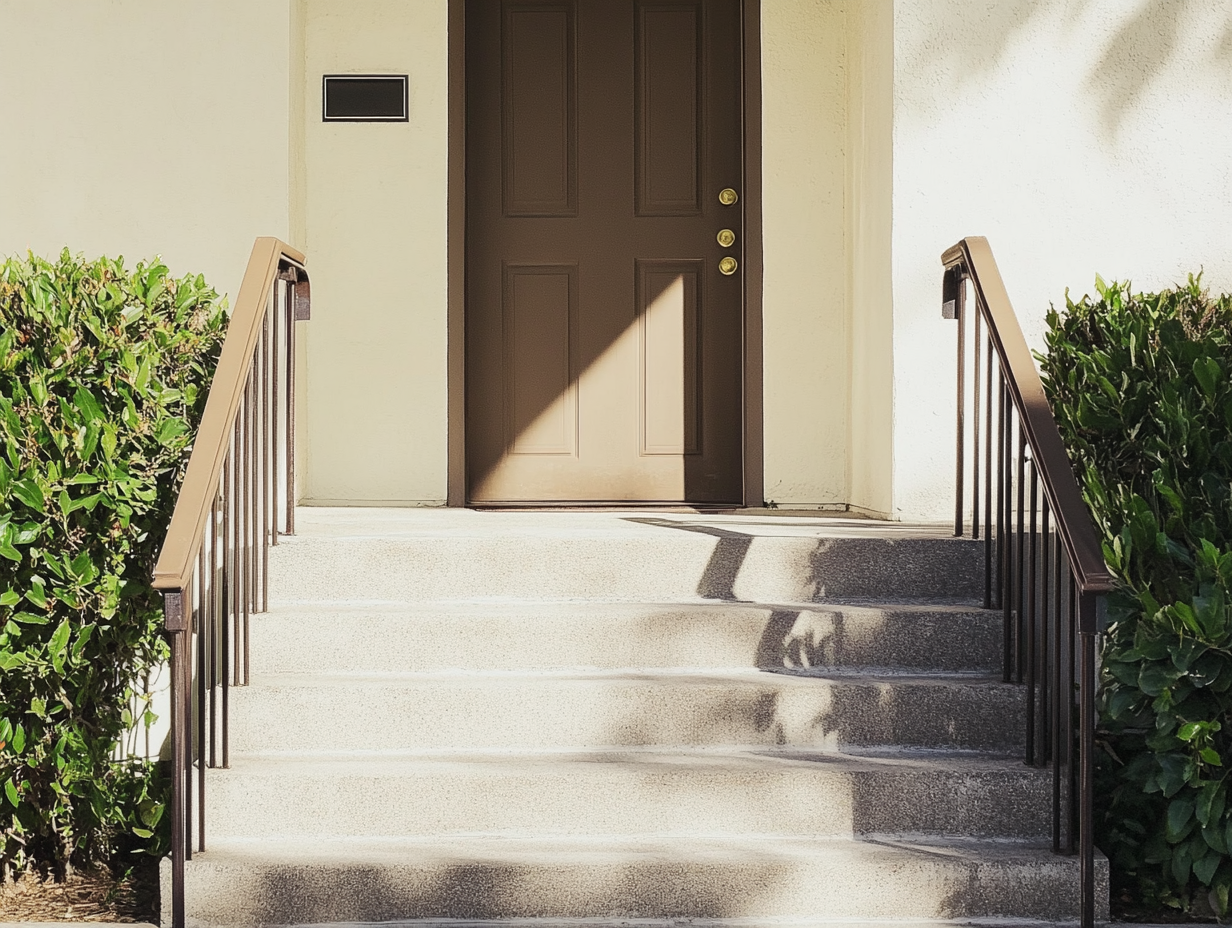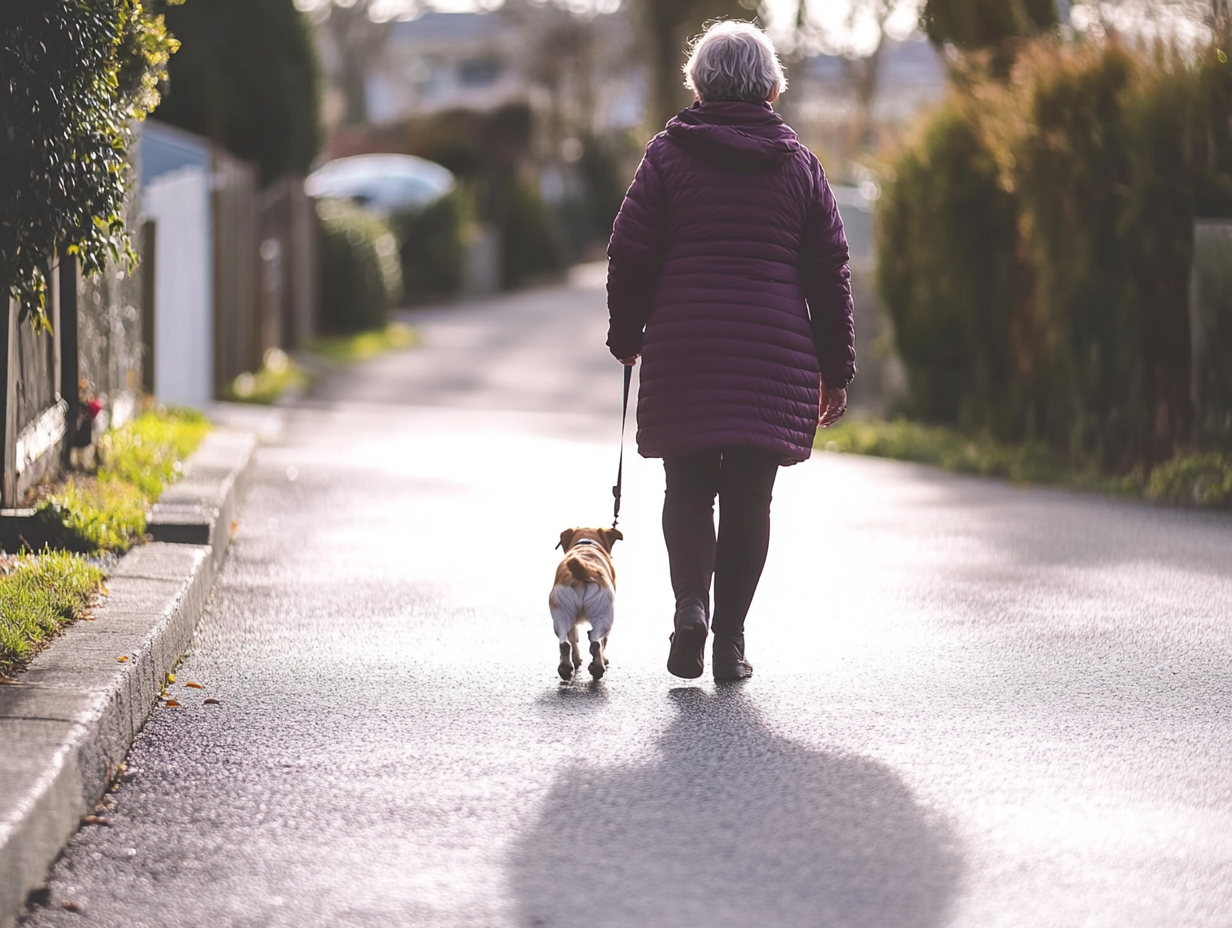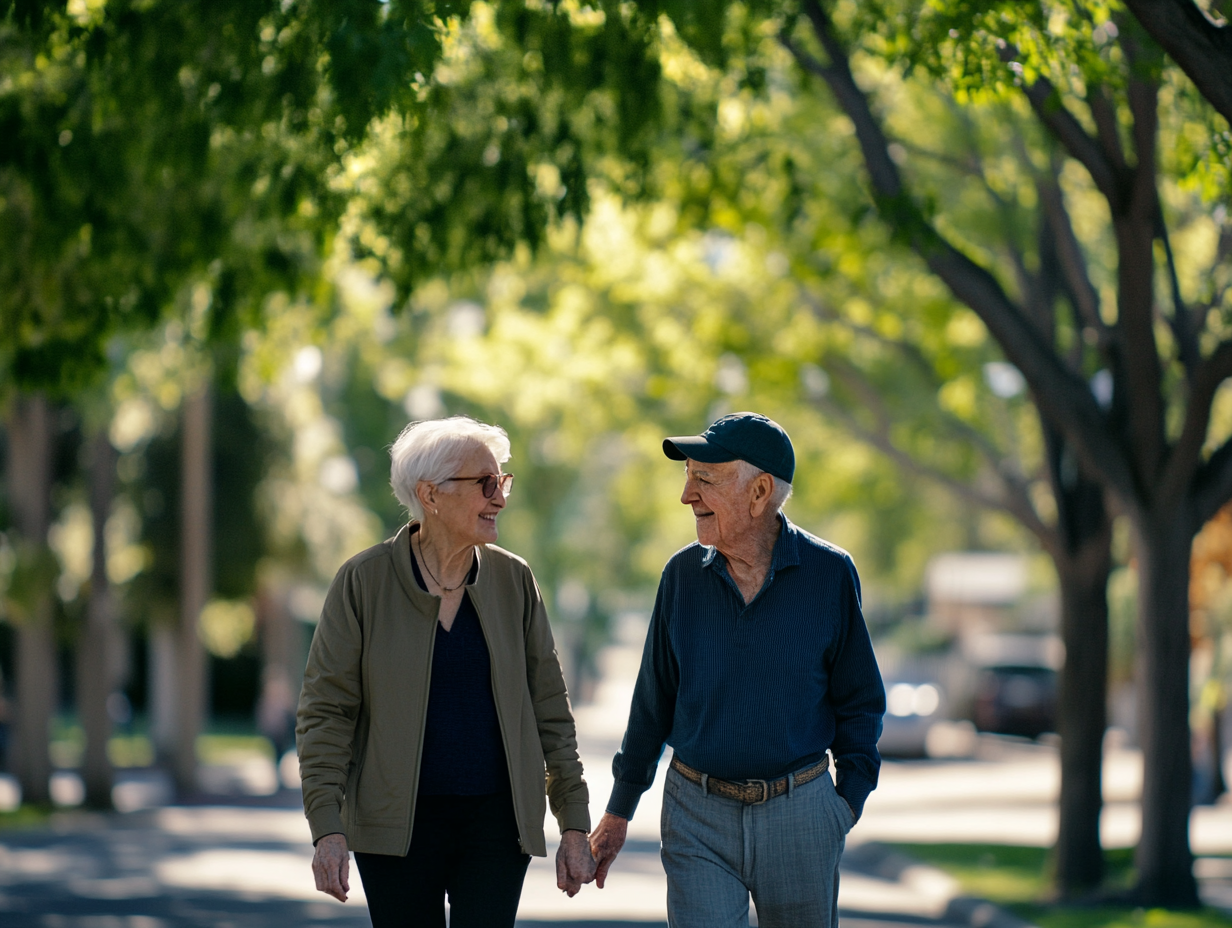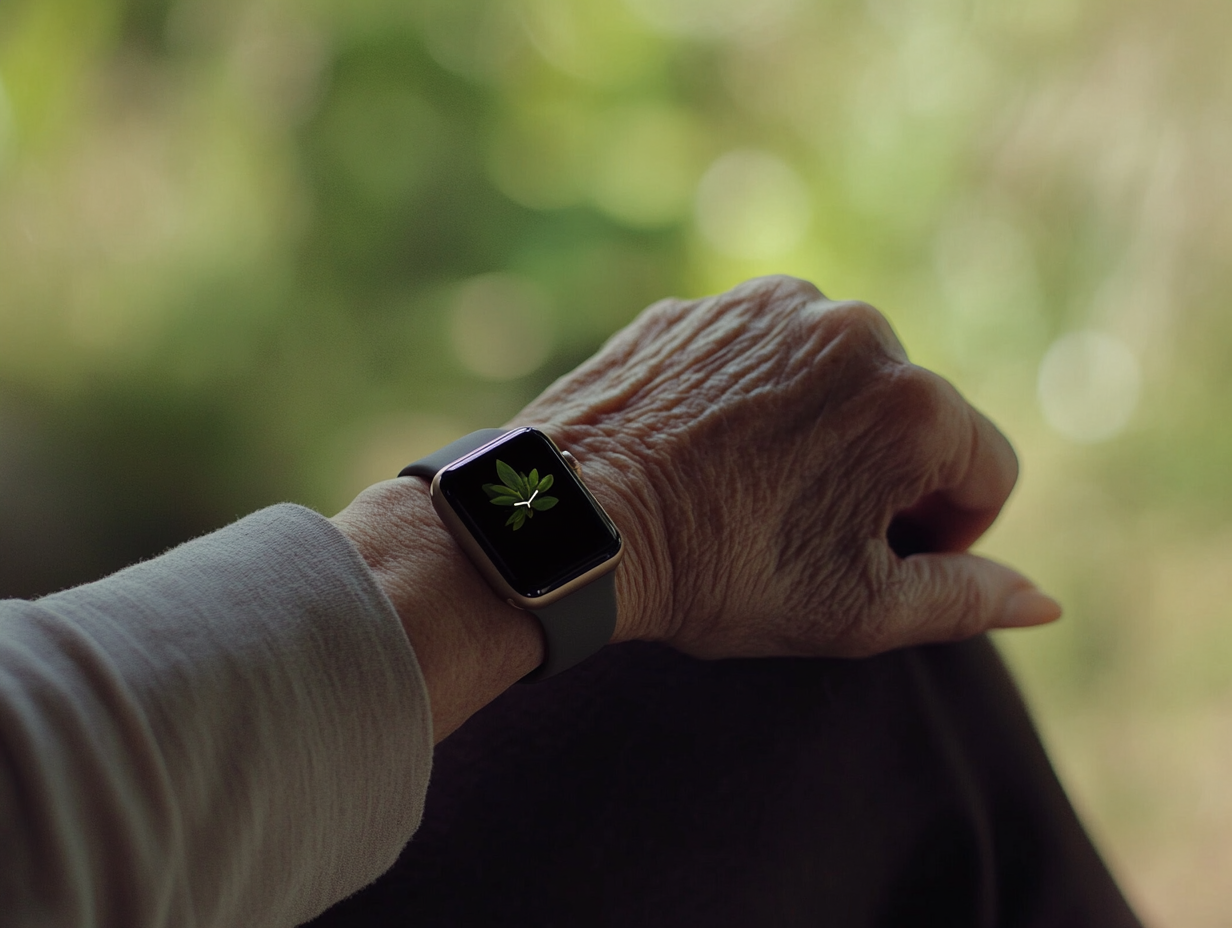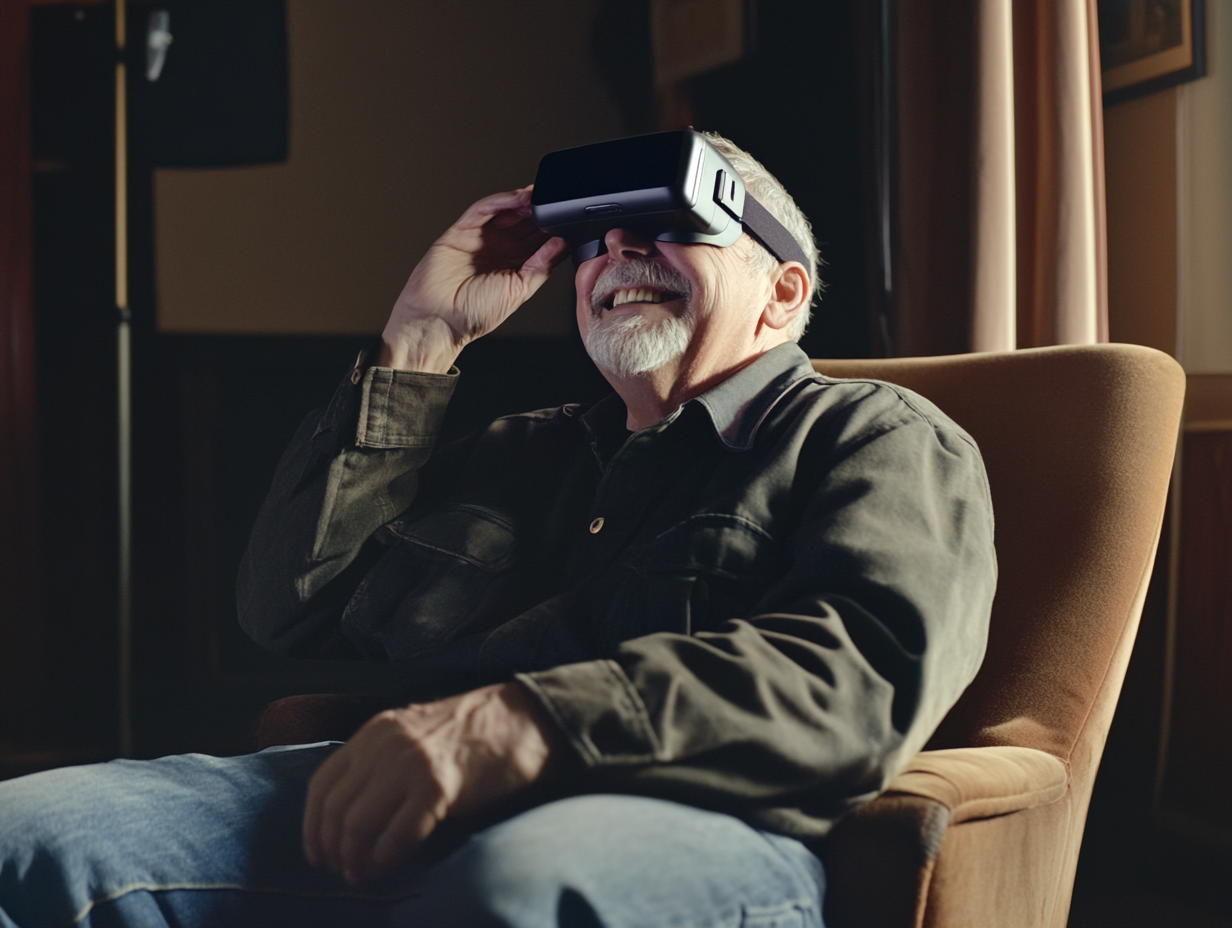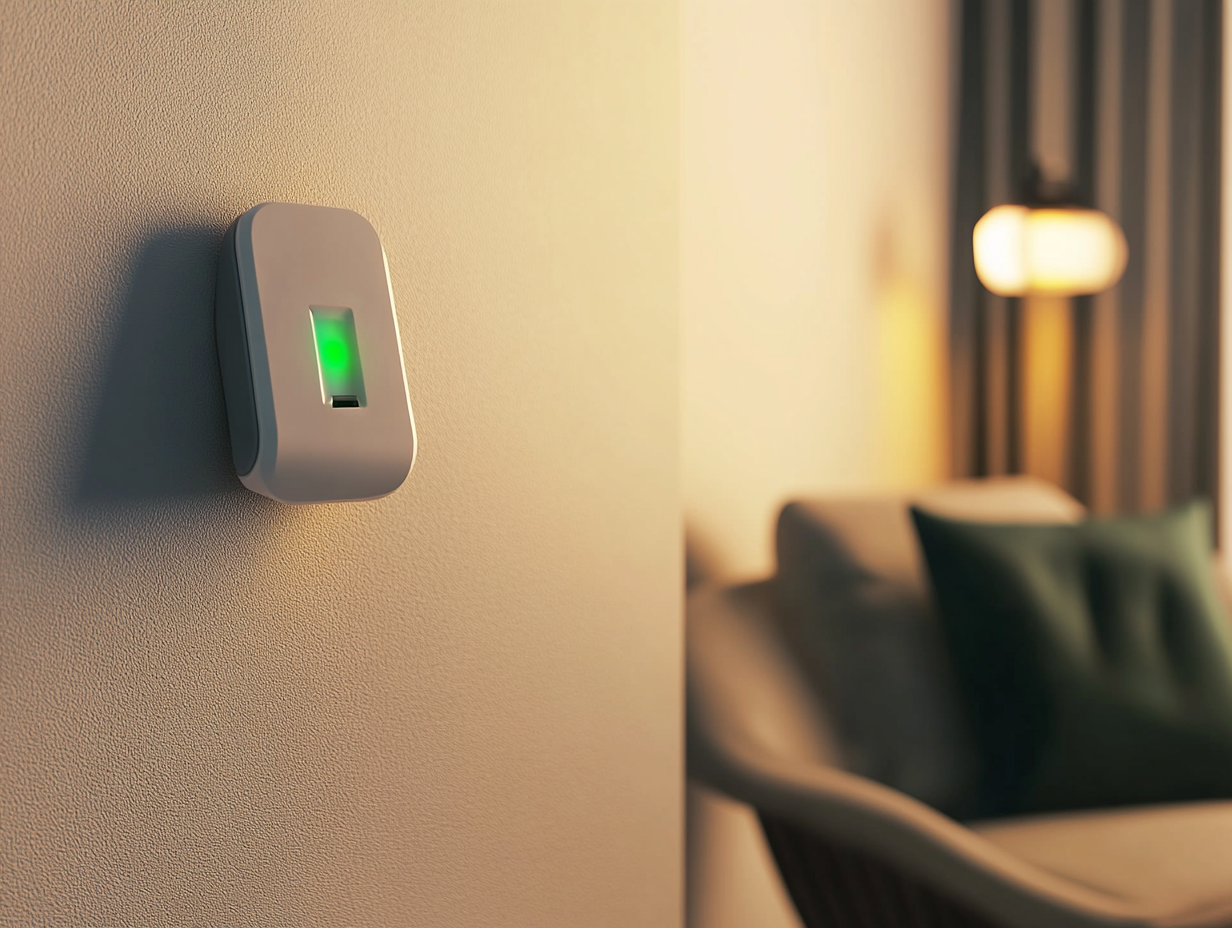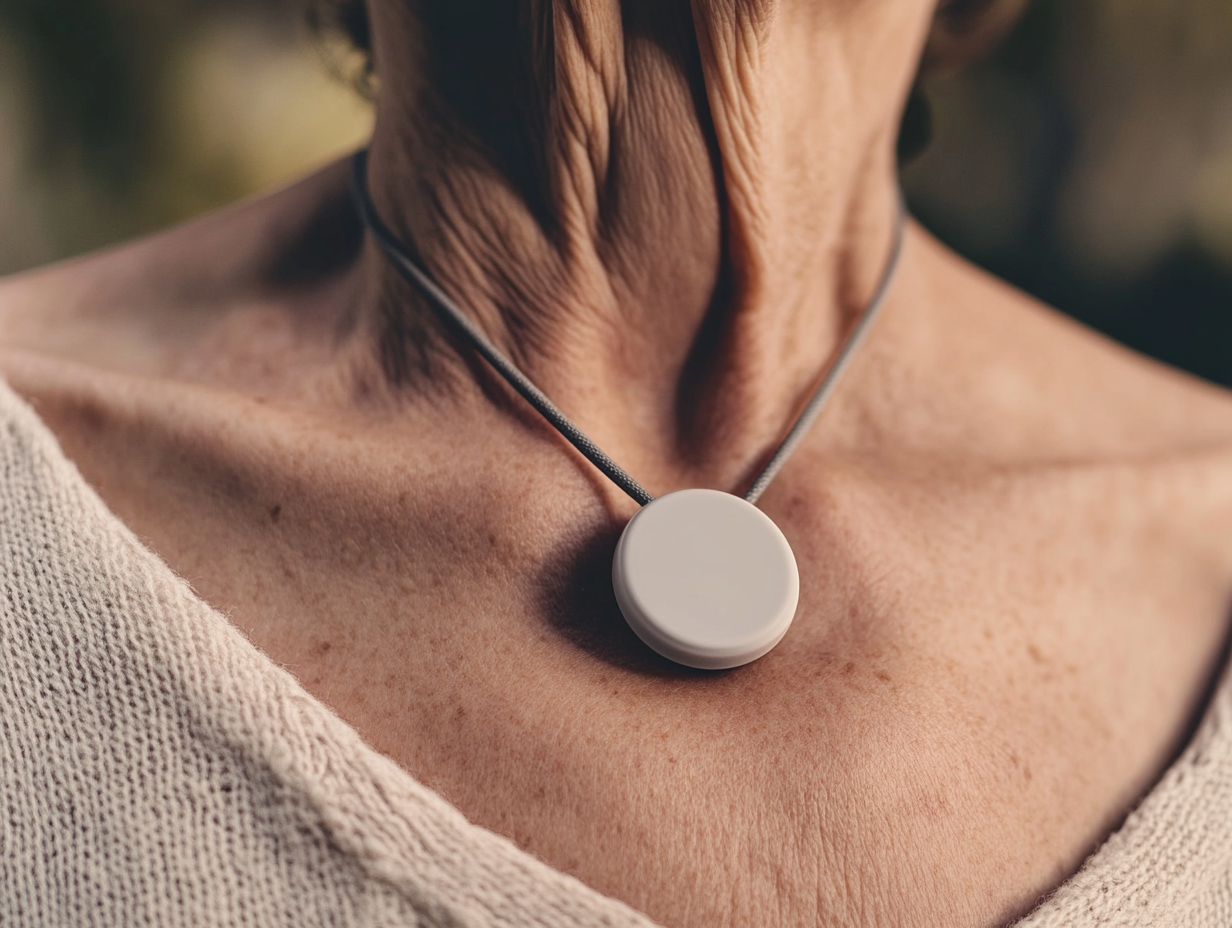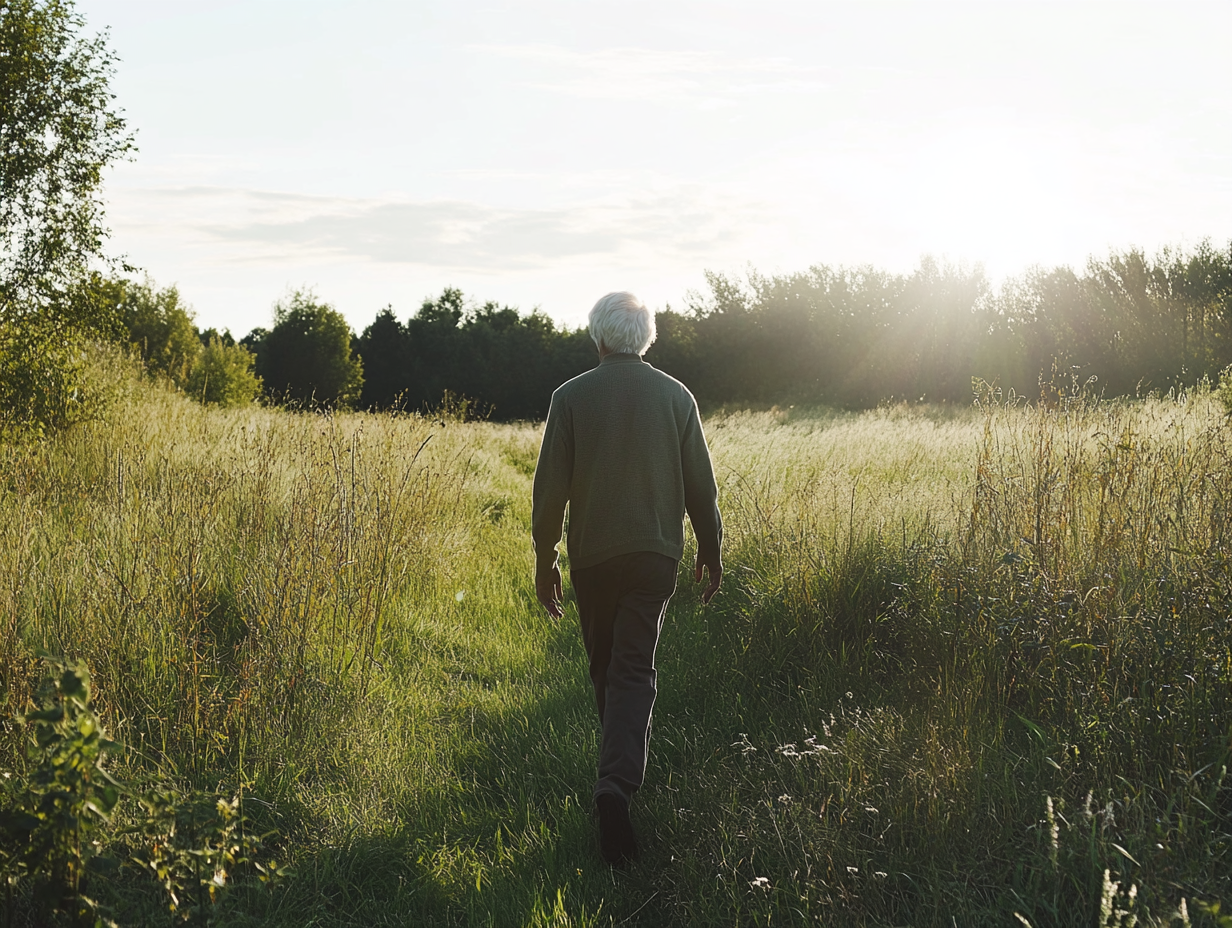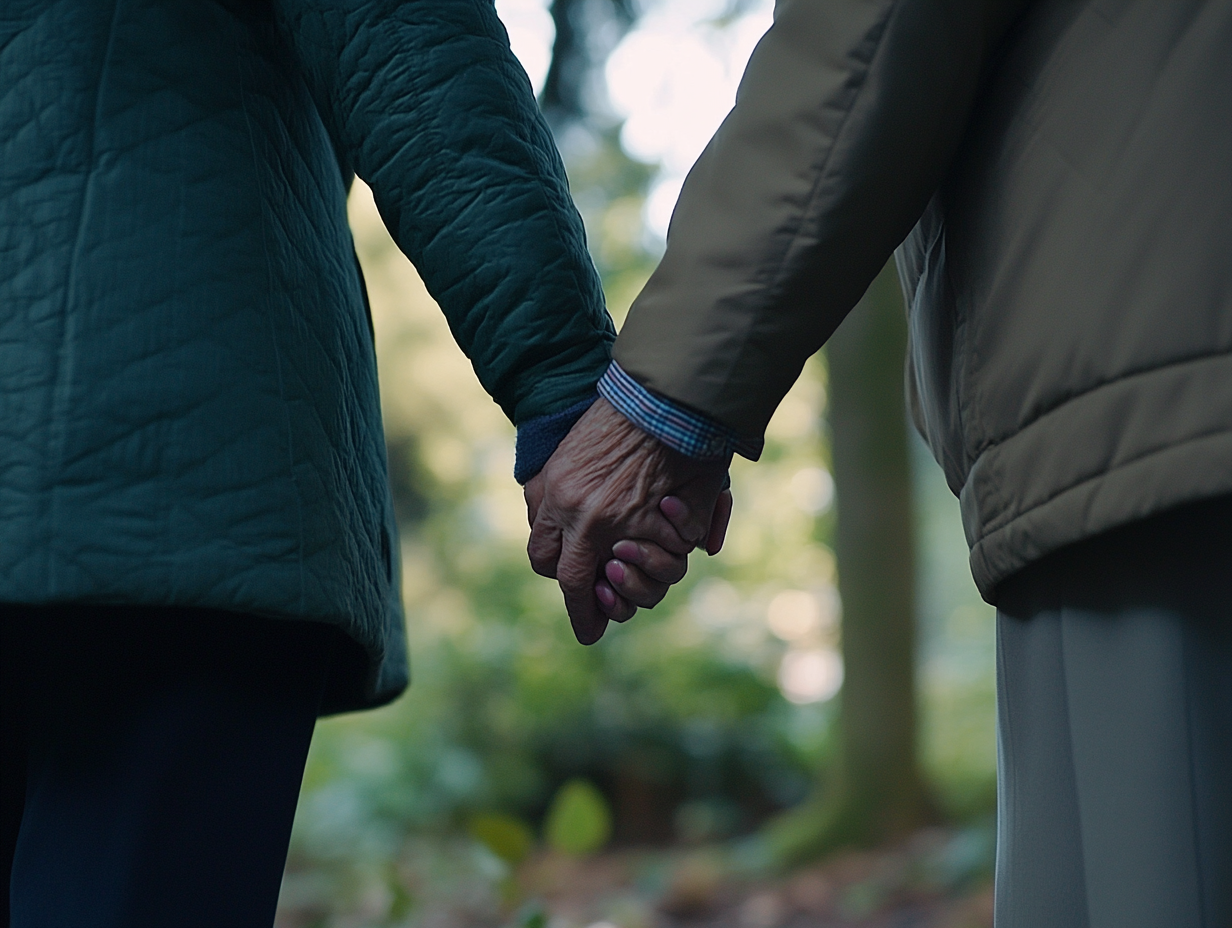Insights & Articles
Independence and safety are crucial for individuals with cognitive impairment, as they promote a sense of dignity and self-worth. This is where the concept of safe zones comes into play, offering a valuable solution …
Have you ever run into someone familiar - but their name just won’t come to you? You’re not alone. Forgetting names is one of the most common memory slips, especially as we get older. …
As we age, our bodies change - and so does the conversation around weight. While there’s plenty of pressure to maintain a “healthy” number on the scale, the truth is, weight isn’t the whole …
Some days feel a little harder than others. You wake up tired, your thoughts feel slow, and even the simplest task seems like a mountain. Whether it's physical fatigue, emotional weight, or mental fog, …
Feeling connected to others is just as important for your health as staying physically active or eating well. But what if getting out and about isn’t easy right now - due to mobility issues, …
The internet has opened up new worlds for staying connected, informed, and independent - but it also comes with risks, especially for older adults. From scam emails and phishing texts to suspicious links and …
What makes a day feel good? Maybe it’s a clear mind, less pain, a moment of connection - or just getting through your list without stress. For caregivers, older adults, or anyone navigating change, …
Feeling sluggish by mid-morning? Struggling to stay awake after lunch? You’re not alone. Many older adults experience dips in energy throughout the day - but that doesn’t mean you have to accept constant tiredness …
It happens in a second: you’re reading an email or text message, and something grabs your attention. Maybe it says your package is delayed. Or that your bank account has been frozen. You click …
Do your legs sometimes feel heavy, tight, or like they’re harder to move than usual - especially after sitting or first thing in the morning? You’re not alone. Many older adults experience stiffness or …
There’s a common myth that learning is just for the young. But the truth is, our brains are built to keep growing - at every age. Whether it’s picking up a new hobby, exploring …
Money can be a sensitive subject - especially as we age. But getting help with financial matters isn’t a sign of weakness or failure. It’s often one of the smartest, most empowering steps you …
You don’t need to carve out hours of your day to support your brain. In fact, some of the best things you can do for your memory, mood, and mental clarity take just five …
If joint pain or arthritis makes movement uncomfortable, you’re not alone. Many older adults deal with stiffness, swelling, and soreness that can make exercise feel out of reach. But here’s the good news: the …
What you eat doesn’t just fuel your body - it also fuels your brain. As we age, nutrition plays a bigger role in how we think, remember, and feel. Certain foods can help protect …
Worried about your memory or someone else’s? You’re not alone. It’s common to forget a name or misplace your keys from time to time, but when forgetfulness starts to affect daily life, a memory …
When it comes to staying healthy as we age, we often hear about the importance of “staying active.” But that doesn’t mean running marathons or lifting heavy weights. In fact, just a little gentle …
Ever feel sluggish, moody, foggy, or just “off” - but can’t quite put your finger on why? Before you blame age, stress, or memory issues, take a moment to look at something simple but …
Just like your muscles, your brain benefits from regular use. Staying mentally active helps improve focus, memory, and even mood - especially as we age. The best part? You don’t need puzzles, apps, or …
Life can feel unpredictable - especially as we age or navigate health changes. But building daily routines can bring a sense of calm, structure, and confidence back into the picture. Whether you live alone, …
As we get older, it’s not uncommon to feel a little unsteady on our feet now and then. You might stand up and feel dizzy, notice your balance isn’t what it used to be, …
Many of us were raised to be strong, self-reliant, and independent. We tell ourselves we should be able to manage on our own - even when life gets harder, our health changes, or daily …
We’ve all been there. You forget something important. You lose track of time. You fumble through something that once felt easy. And suddenly, that quiet voice in your head gets louder: "What’s wrong with …
Staying hydrated is essential to feeling your best - but many older adults don’t drink enough water each day, often without realizing it. You might not feel thirsty, but that doesn’t mean your body …
It’s easy to lose track of time while watching TV, reading, or using your phone - and before you know it, your legs feel stiff, your back aches, and it’s harder to get up.The …
Forgetfulness is a natural part of life - everyone misplaces keys, forgets a name, or walks into a room only to wonder why. But if you’ve started noticing more of these moments lately, it’s …
Staying hydrated is essential at every age - but for older adults, it’s absolutely critical. As we age, our bodies become less efficient at conserving water, our sense of thirst decreases, and common medications …
As we age, good nutrition becomes more important - but often more challenging. For older adults living alone, the simple act of eating well can feel overwhelming: shopping, prepping, cooking, and cleaning up may …
It can be alarming to witness a loved one suddenly become confused, disoriented, or unable to follow a conversation. One day they’re themselves - chatting, remembering details, managing their routine - and the next, …
In dementia care, few non-drug treatments have sparked as much global interest as Cognitive Stimulation Therapy (CST). Endorsed by the UK’s National Institute for Health and Care Excellence (NICE), CST is gaining momentum as …
Aging in place offers many older adults independence, comfort, and control - but living alone also comes with hidden risks. When day-to-day tasks pile up and support systems fade, seniors can experience something often …
When an aging parent or loved one needs support, families often rally together. But while intentions may be good, it’s not uncommon for siblings to clash over how care should be managed. Differences in …
Vascular dementia is the second most common form of dementia after Alzheimer’s disease. While it shares some symptoms - like memory loss and confusion - it has a different root cause and often progresses …
Watching a parent grow older and lose some of their independence is one of life’s most profound emotional shifts. The person who once raised you, guided you, and protected you may now need your …
Digital tools can bring incredible convenience - connecting us to loved ones, doctors, reminders, and information in just a few taps. But for many older adults, the digital world feels anything but simple. From …
The bathroom is one of the most dangerous rooms in the home for seniors. Slippery floors, awkward steps, and poor lighting can all contribute to falls, which are a leading cause of injury among …
If you or a loved one are experiencing memory problems, your healthcare provider may recommend a memory assessment. It’s natural to feel nervous or unsure about what to expect, but understanding the process can …
Emotional wellbeing is more than just “feeling okay” - it’s deeply connected to how our brain functions. Research continues to reveal the powerful relationship between our mental health and our cognitive abilities. For people …
One of the most distressing and dangerous symptoms of dementia is wandering - when a person moves about unpredictably, sometimes leaving home and becoming lost or disoriented. For families, wandering can feel terrifying. A …
Driving is more than just transportation - it’s freedom, independence, and identity.That’s why conversations about driving safety can be incredibly emotional, especially when a loved one is experiencing cognitive decline. But having “the talk” …
When it comes to protecting brain health, most people immediately think about puzzles, exercise, or staying socially active.But there’s another powerful tool right in your kitchen: nutrition. Can nutrition really slow cognitive decline?Emerging research …
Every year, 1 in 4 adults aged 65 and older experiences a fall - many of them serious, and many of them preventable. But here’s the critical truth:Falls rarely come out of nowhere.In most …
A dementia diagnosis doesn’t just change the life of the person receiving it - it reshapes the entire family landscape. Roles shift. Emotions intensify. Relationships evolve in ways that can feel both deeply painful …
When it comes to protecting brain health, many people think first about puzzles, memory games, or learning new skills.And while mental stimulation is critical, there’s another equally powerful tool often overlooked: Physical movement. Exercise …
Hearing the words Mild Cognitive Impairment (MCI) can bring a mix of emotions: confusion, relief, fear, and hope.You might wonder: Is this the beginning of dementia? Can it be reversed? What should we do …
It’s a common question that worries many families:Is this normal aging - or something more serious? As we get older, it’s completely natural for certain mental processes to slow down slightly. Occasional forgetfulness, taking …
Dementia isn’t an inevitable part of aging.While age is the biggest risk factor, research shows that up to 40% of dementia cases worldwide may be preventable through lifestyle changes and early interventions. Small daily …
As we age, maintaining balance and walking stability becomes increasingly important - but it’s often overlooked until a fall happens. Walking steadiness refers to how stable and consistent a person’s steps are when they …
Caregivers are often the invisible backbone of healthcare systems. Across the world, millions of family members and friends provide unpaid care to aging parents, partners with dementia, and loved ones with chronic illnesses - …
Frontotemporal Dementia (FTD) is a group of brain disorders caused by progressive nerve cell loss in the brain’s frontal and temporal lobes - the areas responsible for behavior, personality, language, and movement. Unlike Alzheimer’s …
Caring for someone living with dementia is one of the most profound acts of love - but it also comes with complex challenges. Beyond managing memory loss or health needs, caregivers face deeply personal …
For years, we’ve talked about aging in place. Now, with the rise of voice technology, that vision is getting a powerful new ally. Once considered a novelty, voice assistants and speech-activated tools are now …
When it comes to brain health, few activities are as simple - and as powerful - as walking. Daily walking isn’t just good for the heart and joints. Studies show it can also improve …
Good hydration is essential for everyone, but it’s especially critical for older adults. As we age, the body’s natural sense of thirst diminishes, and medical conditions or medications can further complicate things. For seniors …
Whether it’s a new pain, a change in appetite, or an unusual mood shift, even small symptoms can provide early clues about bigger health issues in older adults. But here’s the problem: those changes …
Recognizing the early signs of dementia can be difficult, especially when symptoms are subtle or brushed off as “normal aging.” But spotting these changes early - and acting on them - can make a …
Chronic Traumatic Encephalopathy (CTE) is a progressive, degenerative brain condition caused by repeated head trauma. Once primarily associated with professional athletes, especially football players and boxers, CTE is now recognized as a broader public …
In today’s tech-driven world, support for seniors isn’t limited to wearables and reminders - it can come from something as simple, and surprisingly powerful, as a voice. Smart speakers like the Amazon Echo (with …
When it comes to caregiving, consistency is key - but life is unpredictable. Whether it’s a sudden illness, travel emergency, or unexpected work commitment, even the most dedicated caregiver can become temporarily unavailable. That’s …
Lewy Body Dementia (LBD) is a complex and progressive brain disorder that affects thinking, movement, behavior, and mood. It’s one of the most common types of dementia after Alzheimer’s disease but remains widely misunderstood. …
Loneliness and isolation can take a serious toll on the mental and physical health of older adults. In fact, prolonged isolation has been shown to increase the risk of cognitive decline, depression, and even …
Aging at home offers familiarity, dignity, and comfort - but it also requires the right support. Thanks to recent advances in smart home technology, independent living is safer and more achievable than ever. From …
Emergencies can happen at any time - whether it's a fall, natural disaster, power outage, or sudden health issue. For older adults, especially those living independently or with cognitive impairment, having a clear and …
Dementia is one of the most pressing public health challenges of our time. As populations age, families and healthcare systems alike face mounting pressure to provide compassionate, cost-effective care for people living with cognitive …
Creating a daily routine for a loved one with early dementia isn’t about control - it’s about restoring confidence, reducing anxiety, and creating a sense of flow and safety. When the world becomes harder …
When your parent begins to age, your role as their child subtly begins to shift. You find yourself making appointments, checking in more often, and helping with decisions. But how do you strike the …
No one wants to feel like they’re being micromanaged - especially older adults who value their independence. Yet as memory becomes less reliable with age or early-stage dementia, missed appointments and confusion about the …
Artificial Intelligence is quietly revolutionizing dementia care. From early detection to personalized daily support, a wave of AI-powered dementia apps is shaping a smarter, more responsive future for people living with cognitive impairment - …
Not all reminders are created equal. For people living with dementia, a standard text-based notification might be confusing or easy to ignore. But what if that reminder came from a familiar voice - or …
Technology isn’t a silver bullet, but for people with mild to moderate cognitive impairment, digital tools have become meaningful supports in their daily routines. Studies show that mobile apps designed for dementia support can …
Not every older adult has someone to lean on. While many seniors enjoy the support of children, partners, or extended family, a growing number face aging alone. Whether due to geographical distance, estranged relationships, …
The world is aging. For the first time in human history, people over 65 will outnumber those under five. By 2050, one in six people globally will be over the age of 65. This …
As the global population ages and rates of cognitive impairment continue to rise, technology is stepping up to support both individuals living with dementia and the families who care for them. Mobile apps are …
Caregiving is often described as a labor of love - but it can also be isolating, emotionally taxing, and physically exhausting. For the millions of people around the world who care for aging loved …
As people age, their health needs may increase, but their right to participate in decisions about their care remains just as essential - if not more so. Involving older adults in their care planning …
Staying hydrated is essential for healthy aging. For older adults, dehydration can lead to confusion, dizziness, constipation, urinary tract infections, and even hospitalisation. But remembering to drink water regularly isn’t always easy - especially …
For many older adults, staying in their own home is a powerful symbol of independence. But as we age, our homes may pose risks that weren’t there before - slippery floors, poor lighting, or …
Wandering is one of the most serious safety concerns for families supporting someone with dementia. It’s estimated that 6 in 10 people with dementia will wander at some point - and if they’re not …
Falls are one of the most common and serious risks for older adults. In fact, around one in three people over the age of 65 experiences a fall each year - and for many, …
As people live longer and choose to age at home, the question of where they age becomes increasingly important. Whether in a bustling city or a quiet rural town, older adults have distinct needs …
Receiving a diagnosis of mild cognitive impairment (MCI) can be unsettling. It’s often described as the “in-between” stage - when memory or thinking problems are noticeable, but not severe enough to interfere significantly with …
Most older adults don’t want to give up their independence - and they shouldn’t have to. While aging may bring physical or cognitive changes, independence doesn’t mean doing everything alone. It means having the …
Caring for a loved one is one of the most selfless things a person can do. Whether you’re supporting a parent with dementia, a partner with chronic illness, or a grandparent aging in place, …
Dementia affects millions of people around the world - but it doesn’t affect everyone the same way. From the risk of developing the condition to how symptoms present and how people respond to treatment, …
We’re living longer than ever before - and that’s a good thing. But what happens when a global rise in life expectancy outpaces our ability to care for an aging population? Welcome to the …
Advancements in technology have led to the development of various in-home monitoring solutions: Fall Detection Systems: Devices like the Kami Fall Detect Camera utilize AI to monitor for falls and alert caregivers, offering features …
Co-design, or participatory design, involves end-users directly in the creation process of products and services. For seniors, this means collaborating with designers and developers to ensure that technologies align with their preferences, abilities, and …
Getting a loved one to take their medication - day in, day out - can sometimes feel like walking a tightrope. For those caring for an older adult or someone with cognitive impairment, medication …
As the global population ages, so does the demand for accessible, intuitive tools that support wellness and independence. Today’s older adults are more tech-savvy than ever - using smartphones and tablets not just for …
Today’s seniors are more connected, tech-savvy, and health-conscious than ever. Whether it’s video calling the grandkids, tracking medications, or getting help at the touch of a button, mobile apps are making life easier - …
For many of us, it’s second nature to rely on reminders - whether it’s a sticky note on the fridge, a calendar alert, or a family member calling to say, “Don’t forget your appointment …
Dementia doesn’t just affect memory - it often impacts how a person speaks, listens, and understands. As the condition progresses, once-simple conversations can become confusing, frustrating, or even distressing for both the person with …
Falls are one of the leading causes of injury and hospitalization among older adults - and often, they happen when no one is around to help. For seniors living alone or managing cognitive impairment, …
As we age - or as our loved ones do - safety becomes a greater priority. For seniors living alone or managing conditions like dementia, an unexpected fall, medical episode, or moment of disorientation …
Dementia doesn’t just affect memory - it can also cause major changes in mood, personality, and behavior. For family caregivers, these changes are often the most challenging part of the condition. One day your …
Balancing work and caregiving isn’t just difficult - it can feel impossible. One minute you're answering emails or leading meetings; the next, you’re coordinating doctor’s appointments, managing medications, or comforting someone you love. It’s …
Caring for someone with dementia is not just an emotional journey - it’s a financial one too. As memory fades and daily tasks become harder to manage, expenses increase, decisions grow more complex, and …
Caregiving is often described as an act of love. And it is. But when you're constantly giving - to a parent, partner, or loved one with dementia - it's easy to cross an invisible …
When your partner is diagnosed with dementia, your relationship changes in ways that are difficult to prepare for. The person who once shared your memories, routines, and future plans may now forget your anniversary, …
Brain-training apps, word puzzles, memory games - these are often marketed as tools to keep your mind sharp and possibly even ward off dementia. But do these activities actually prevent memory loss, or are …

